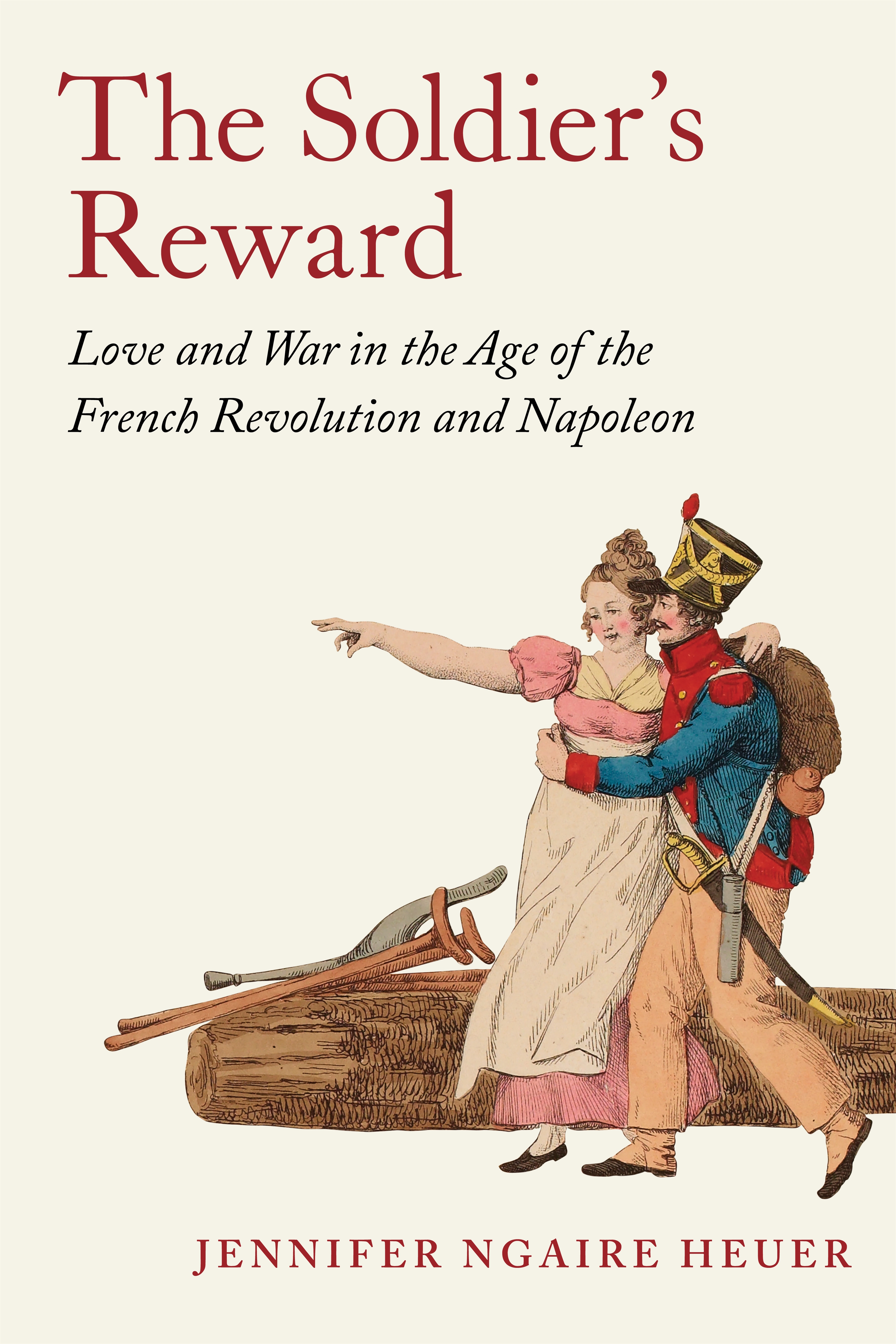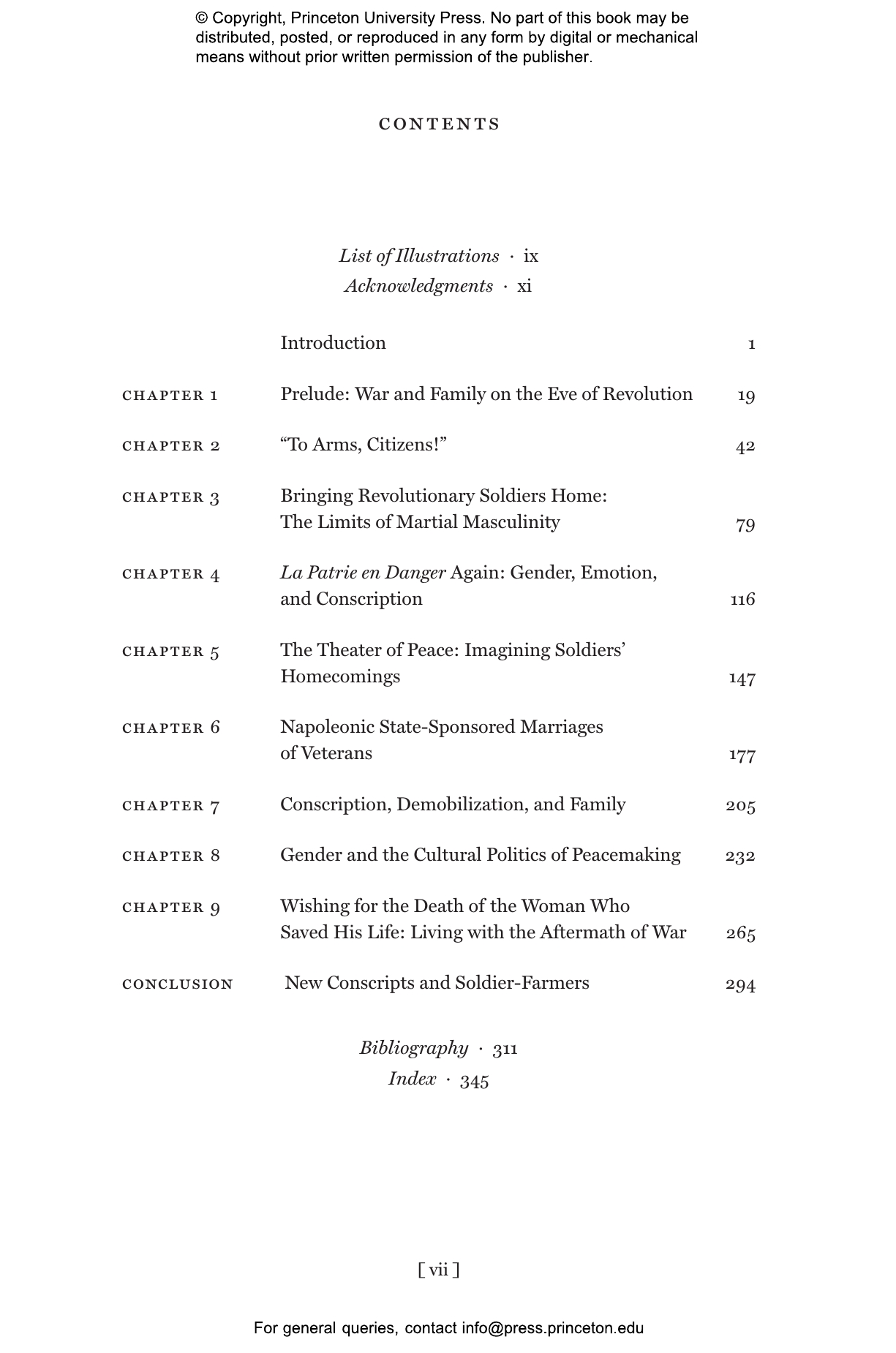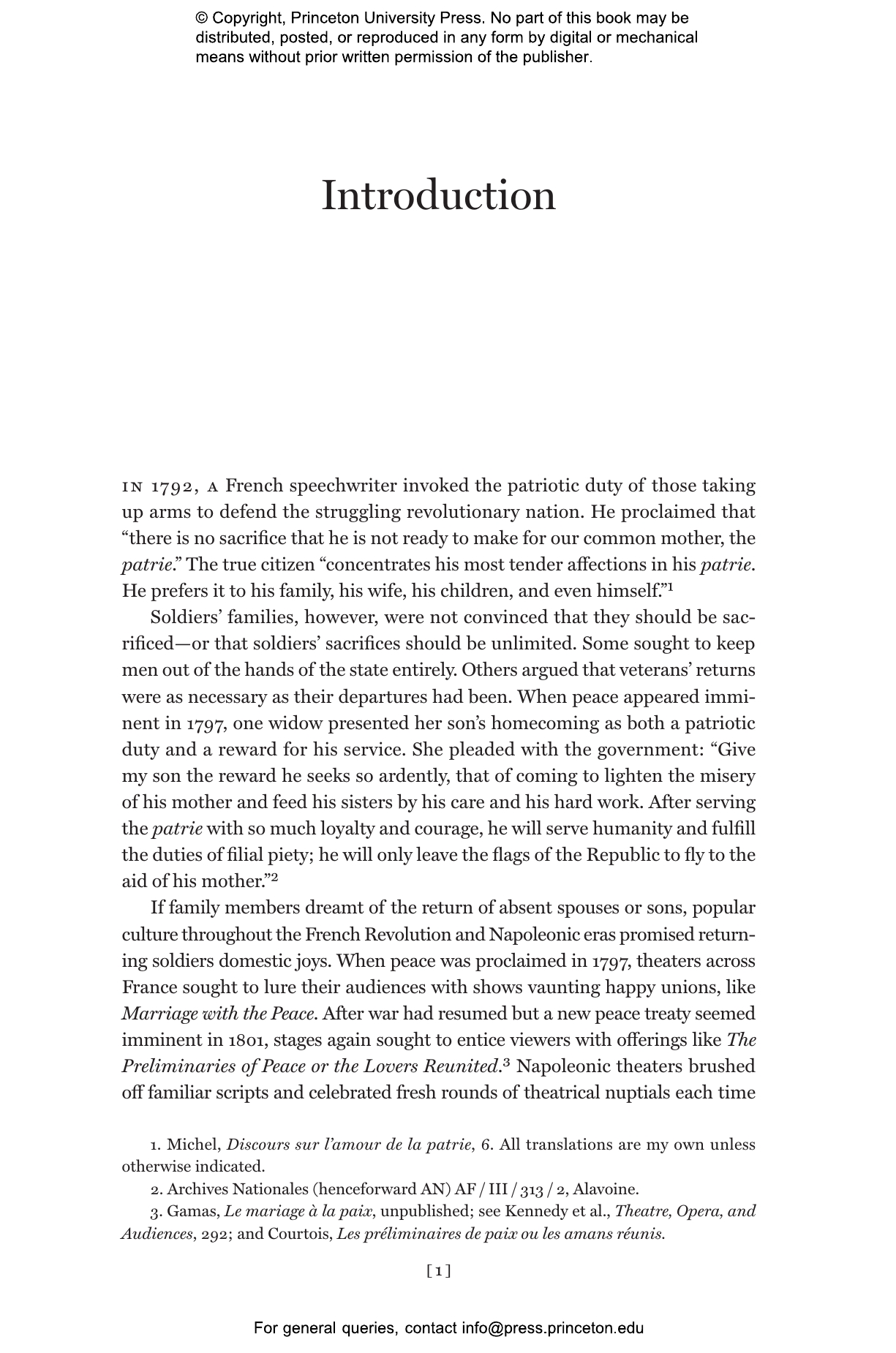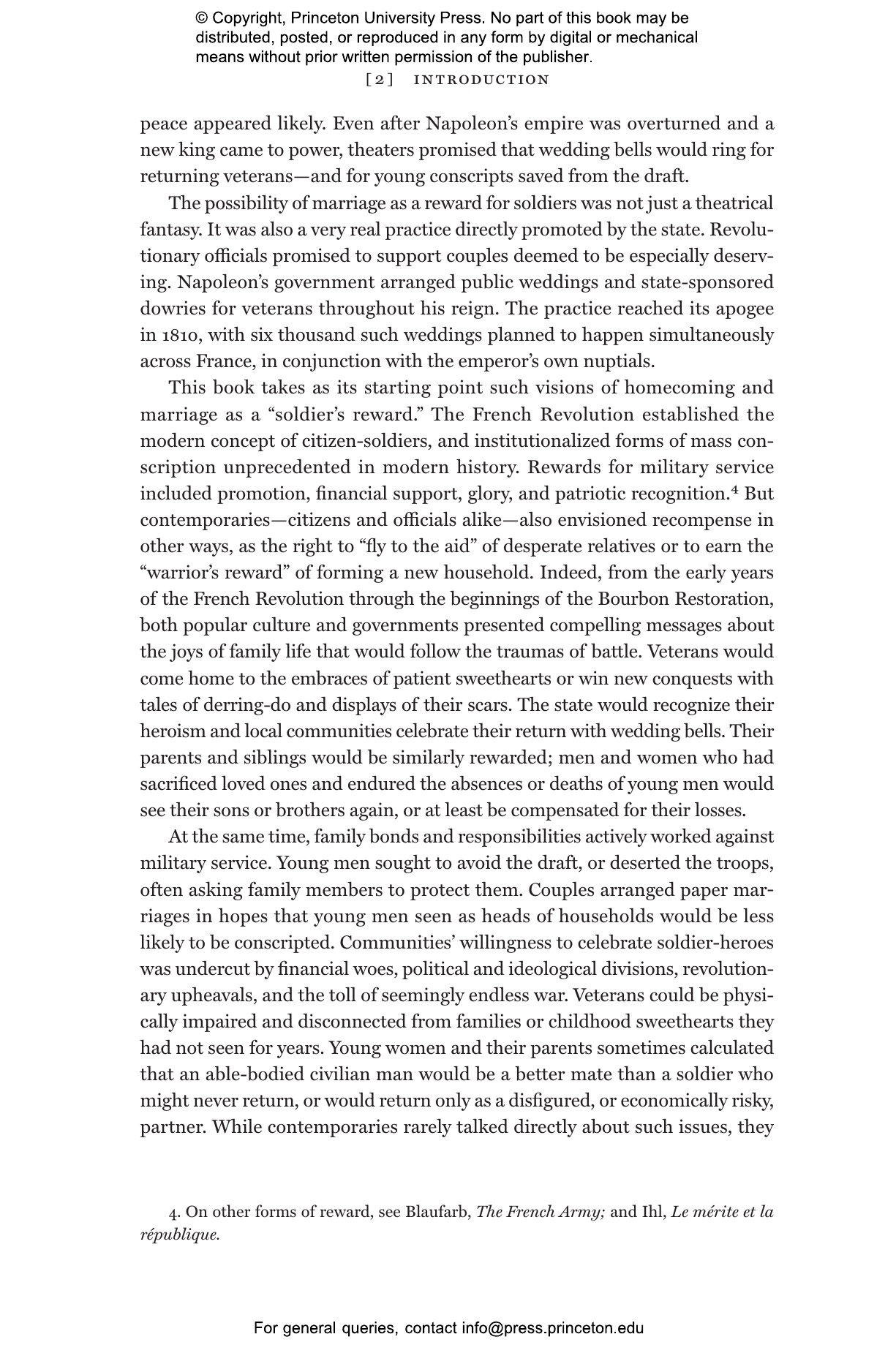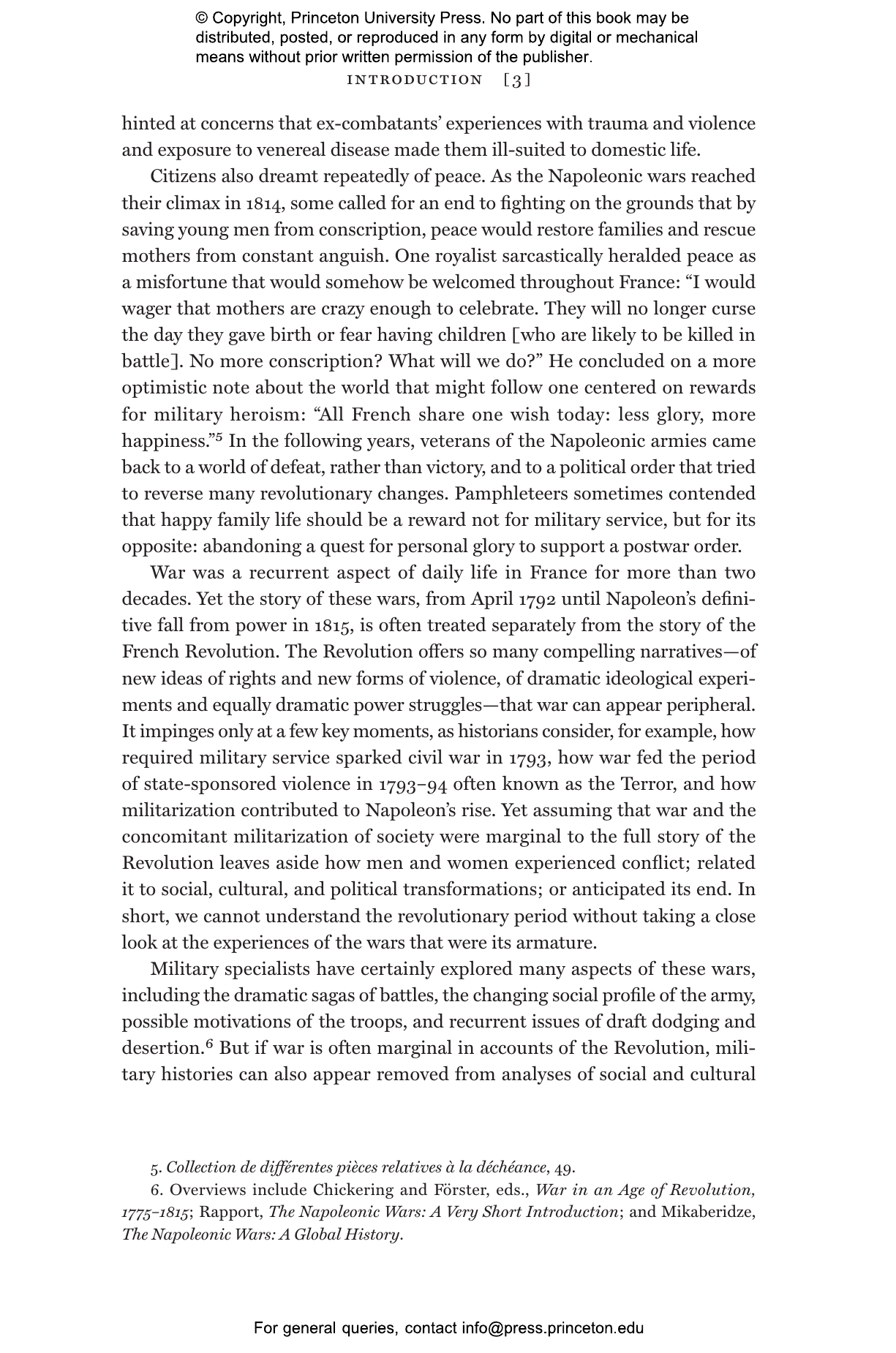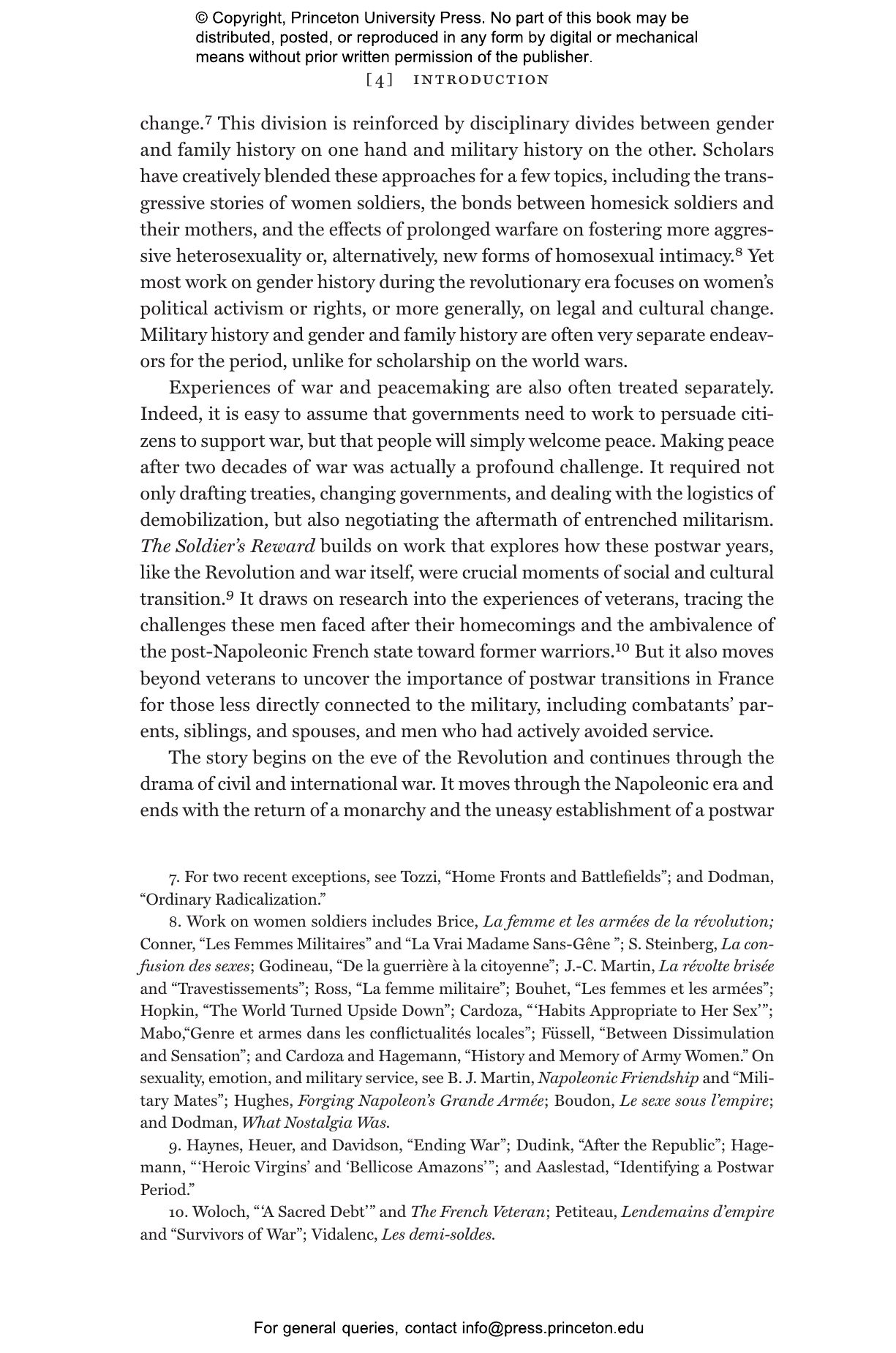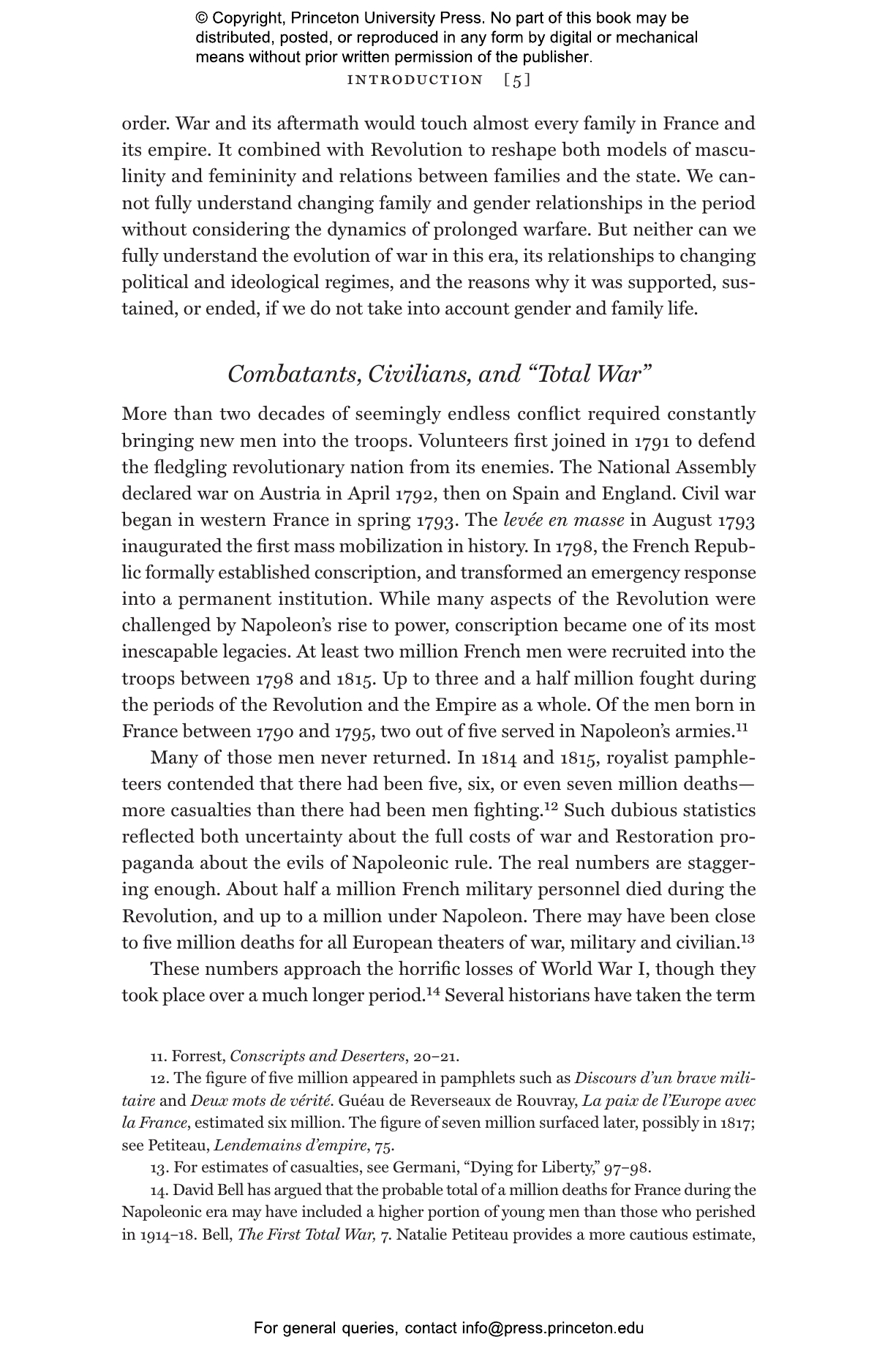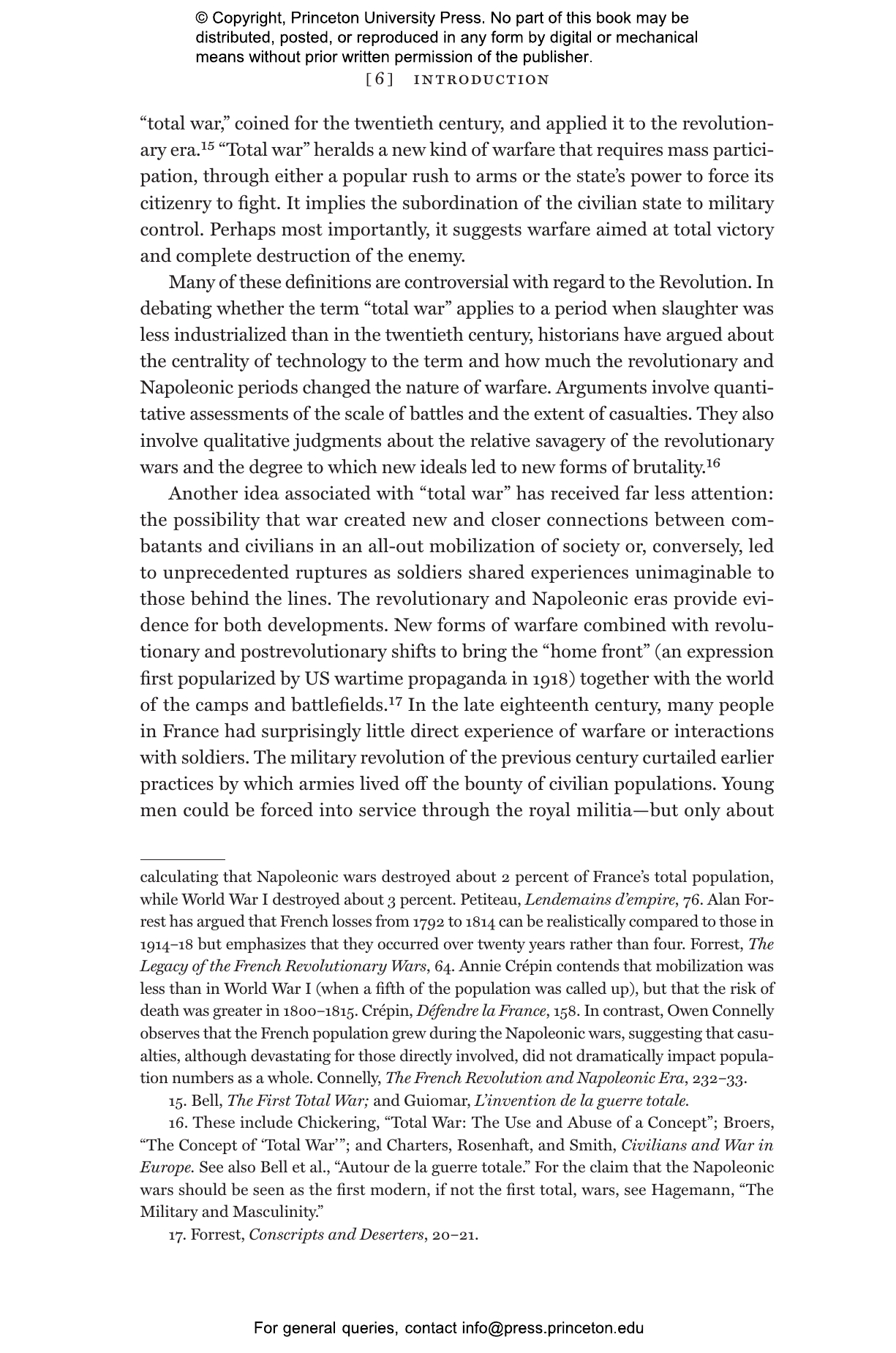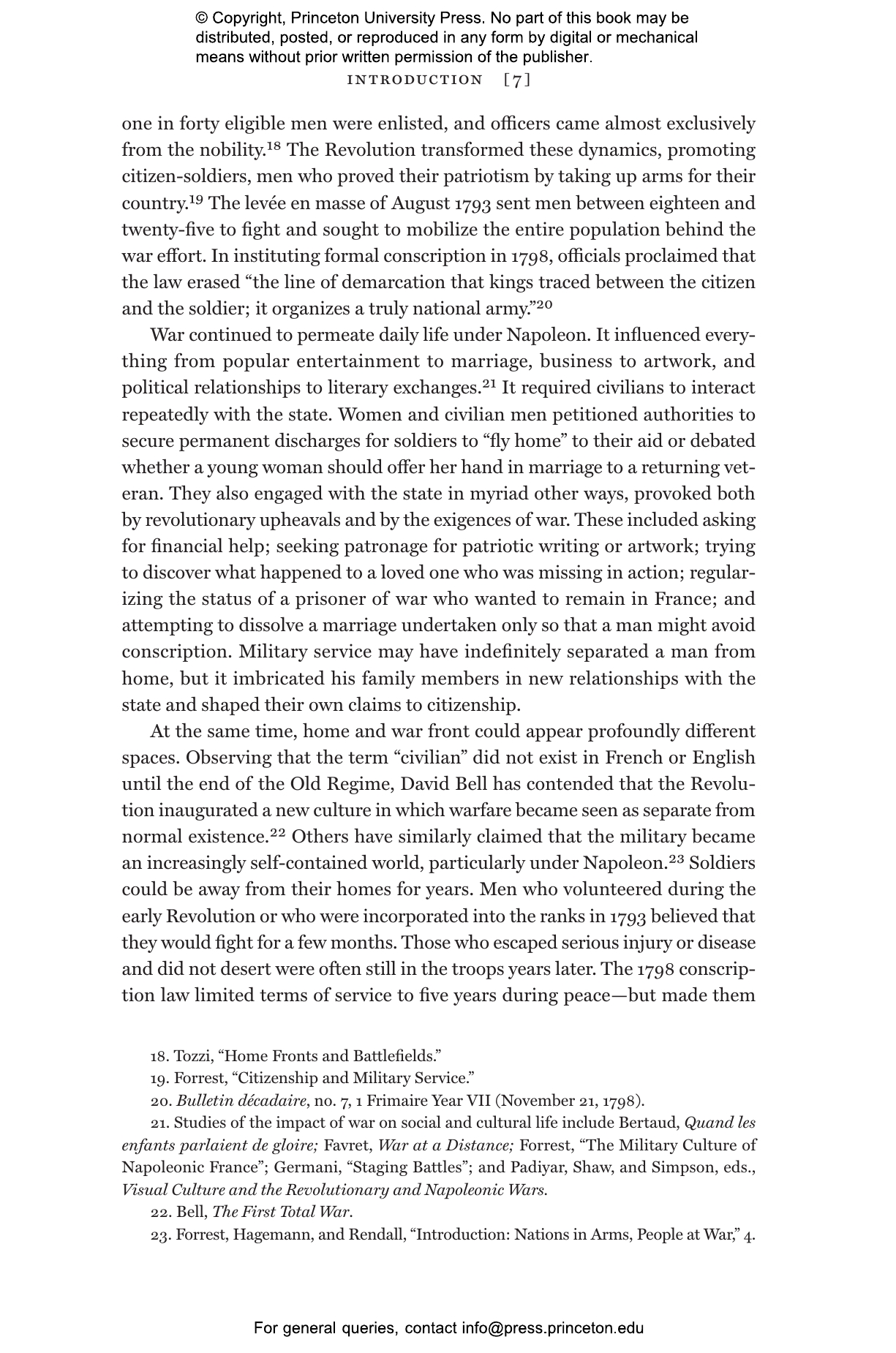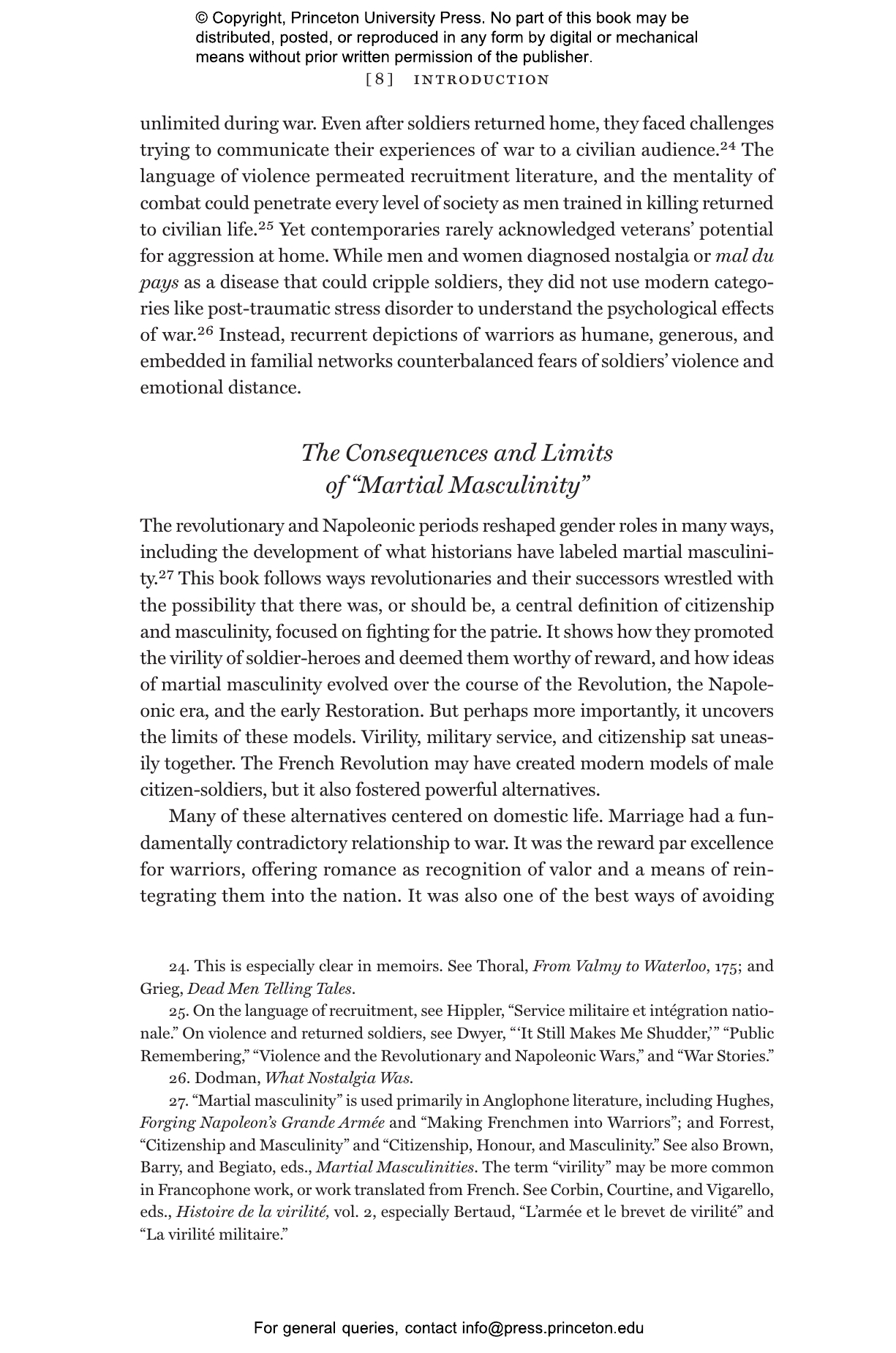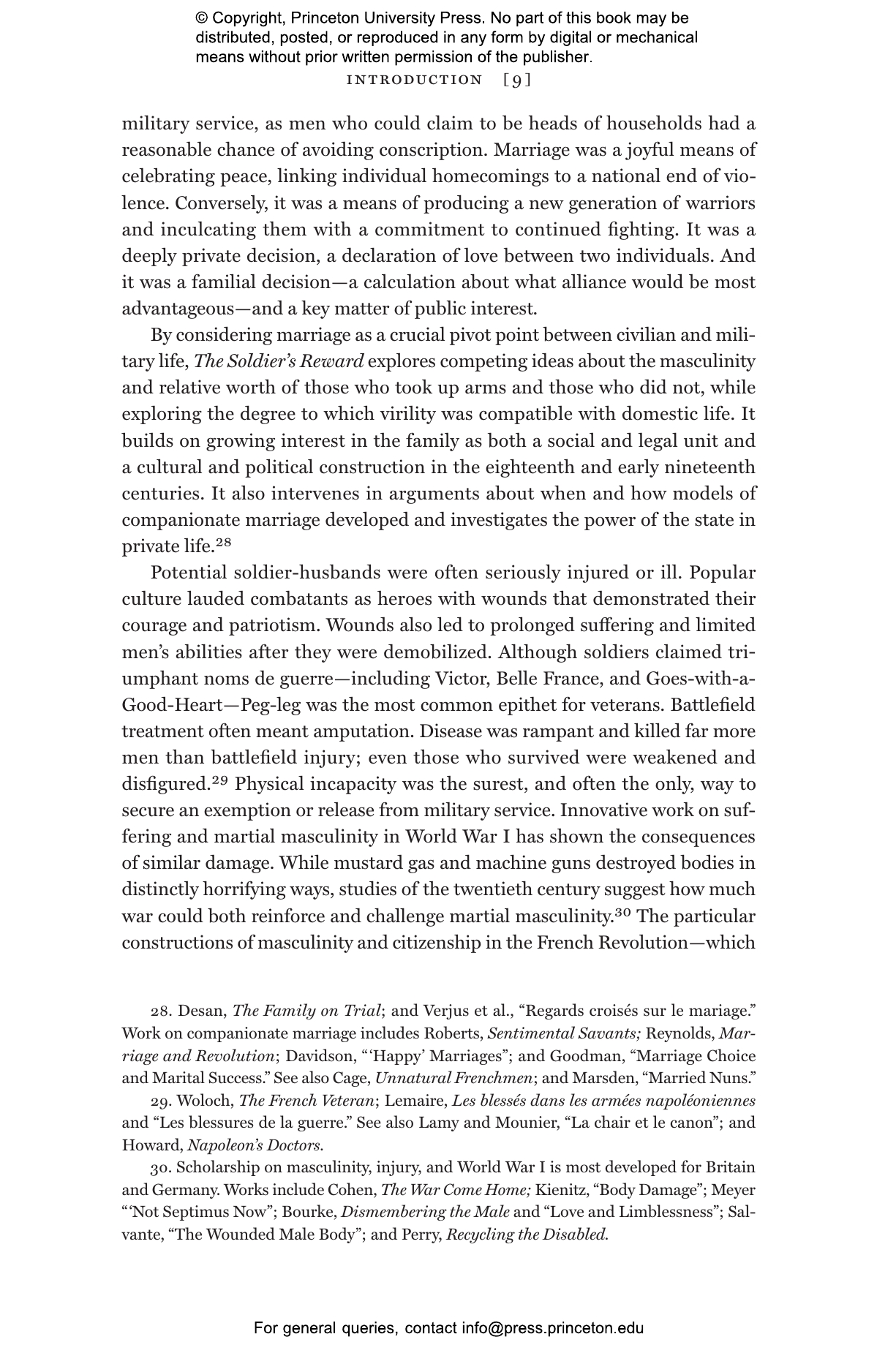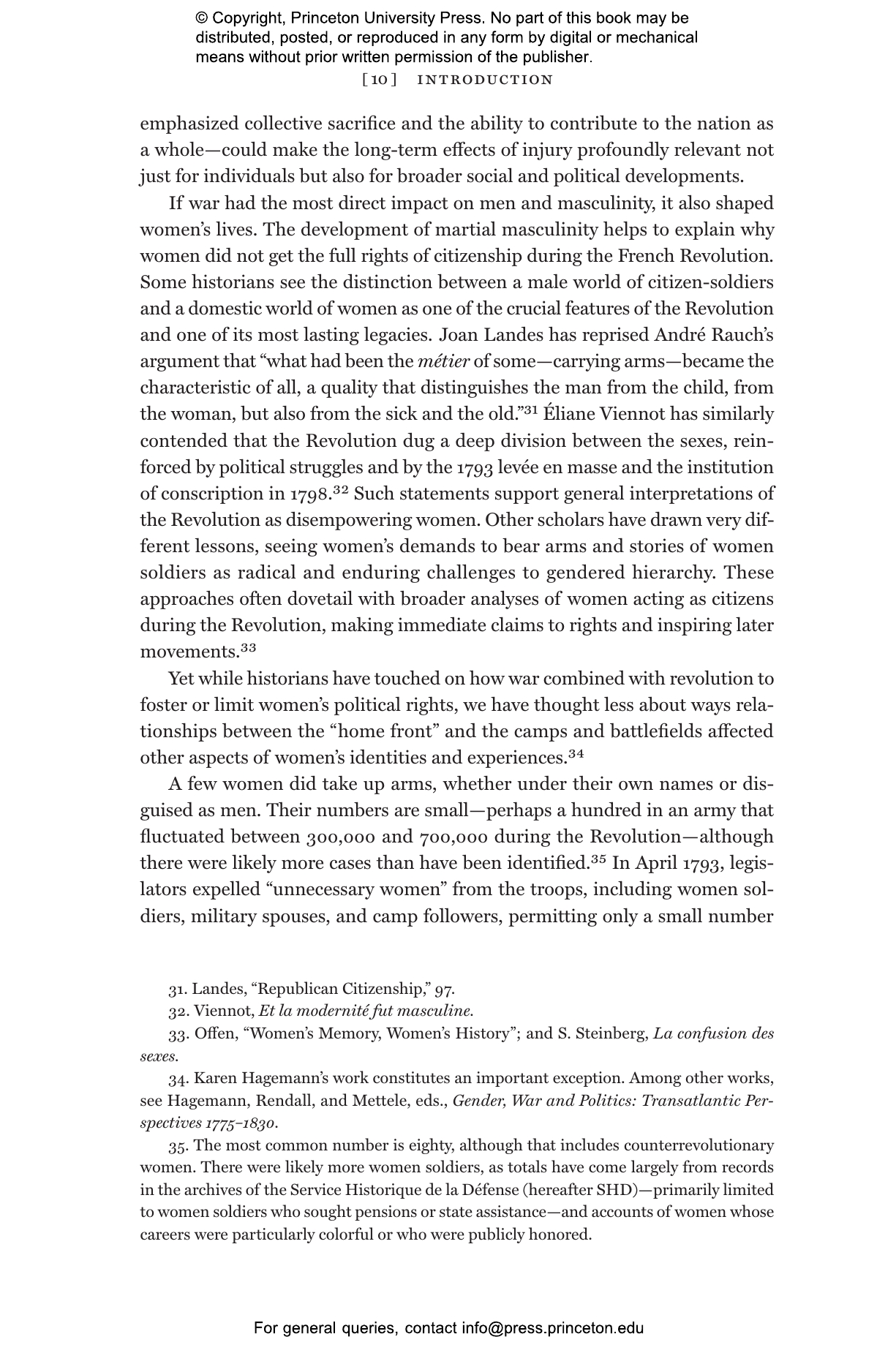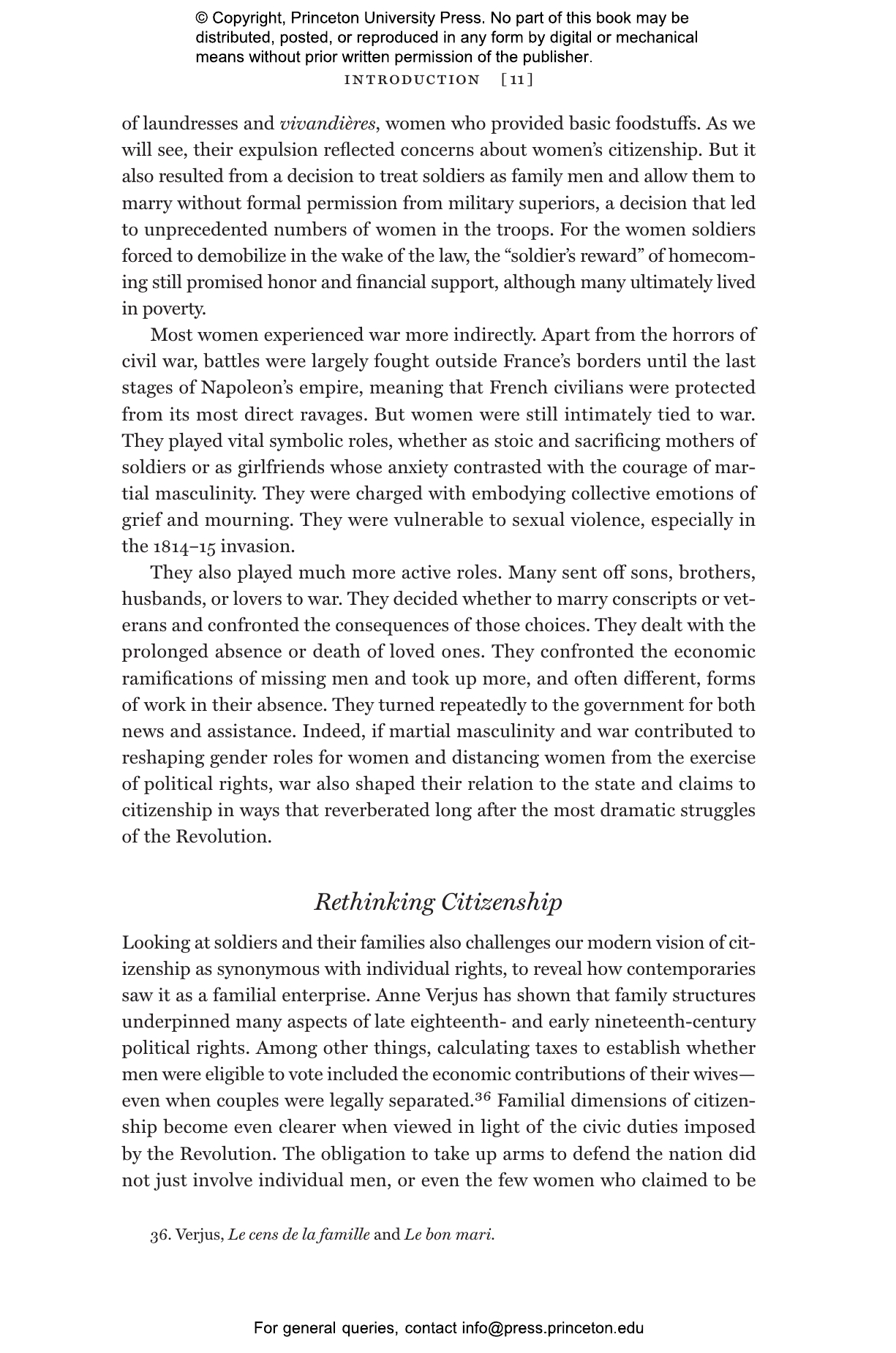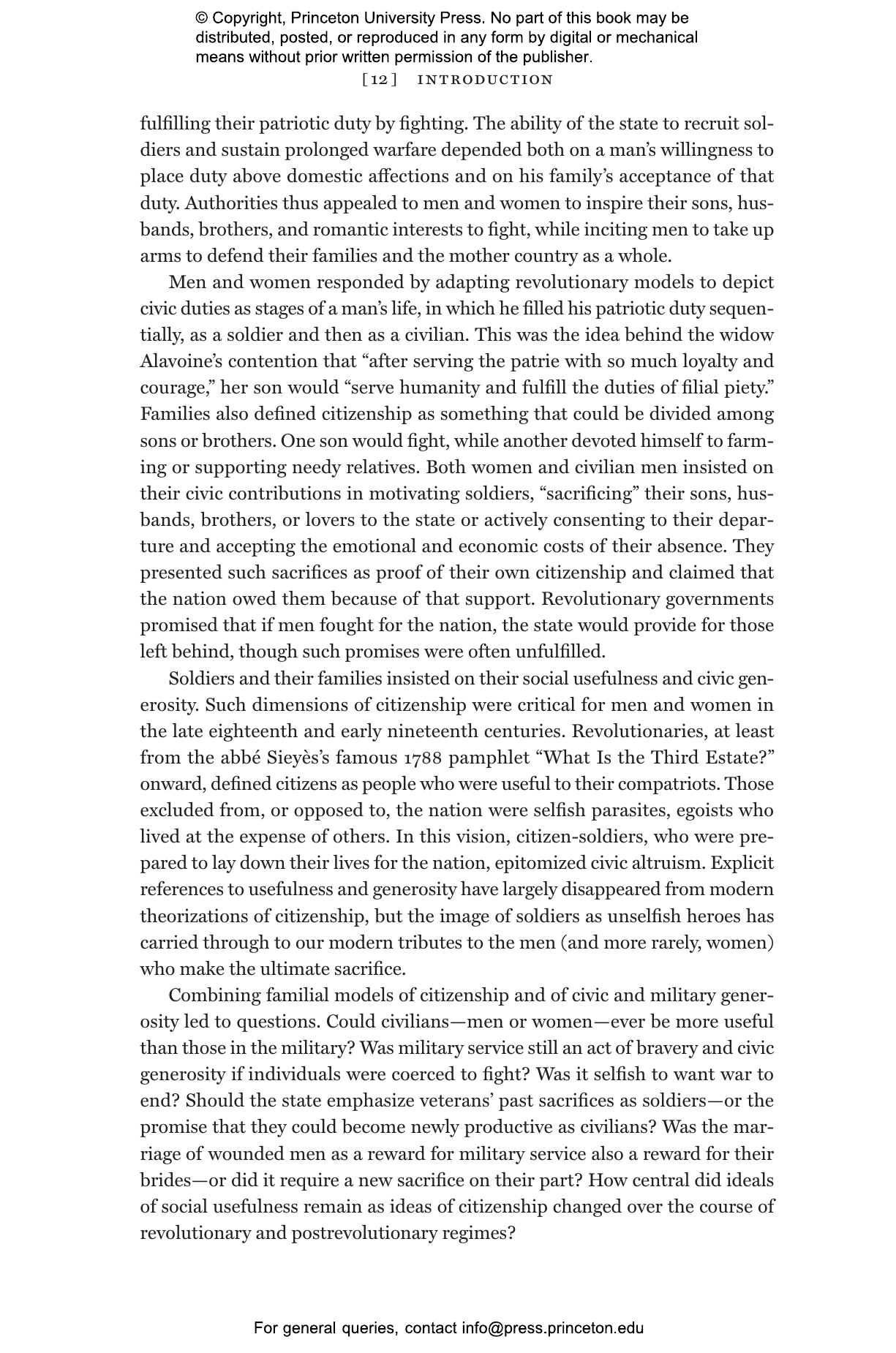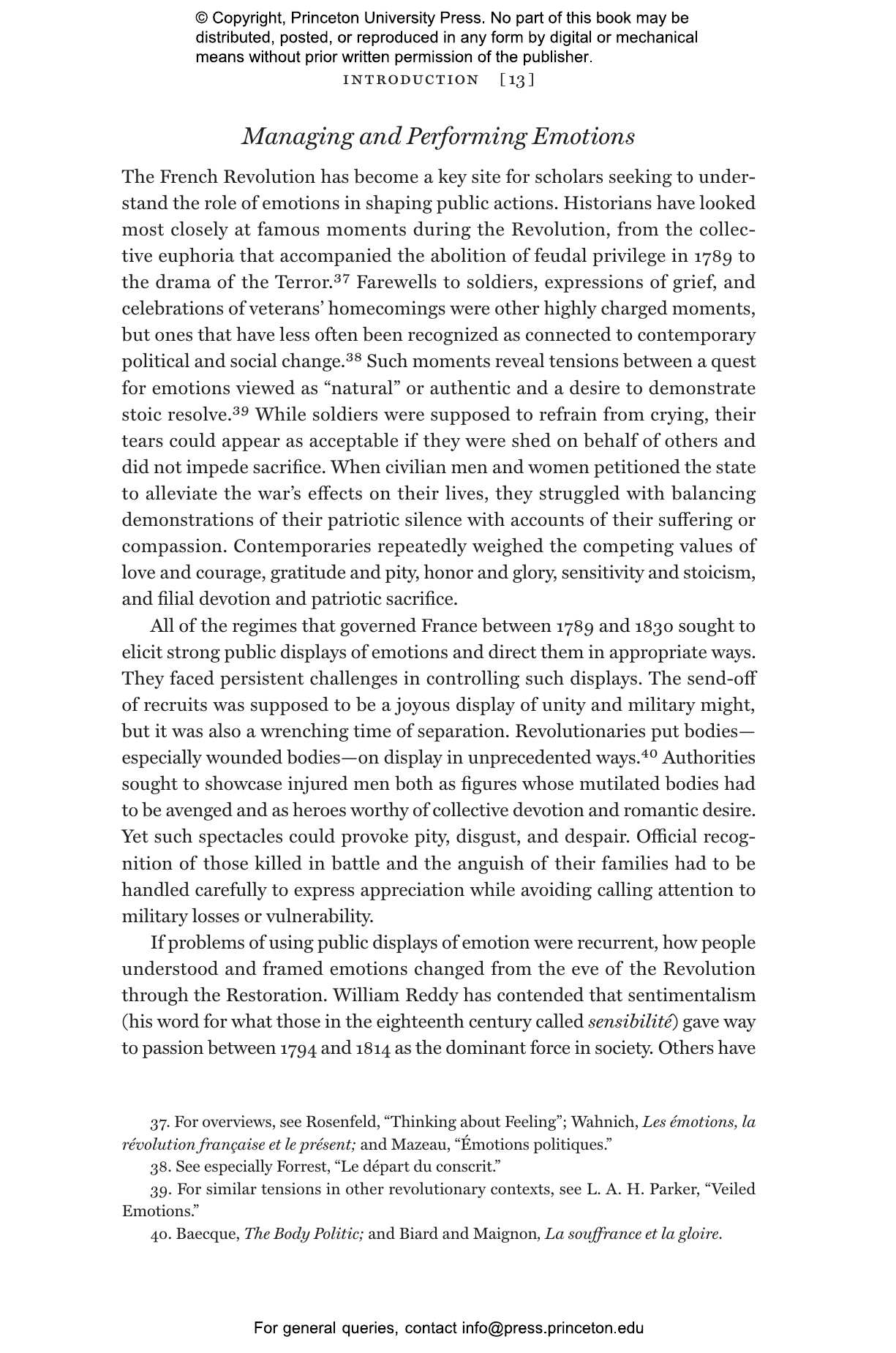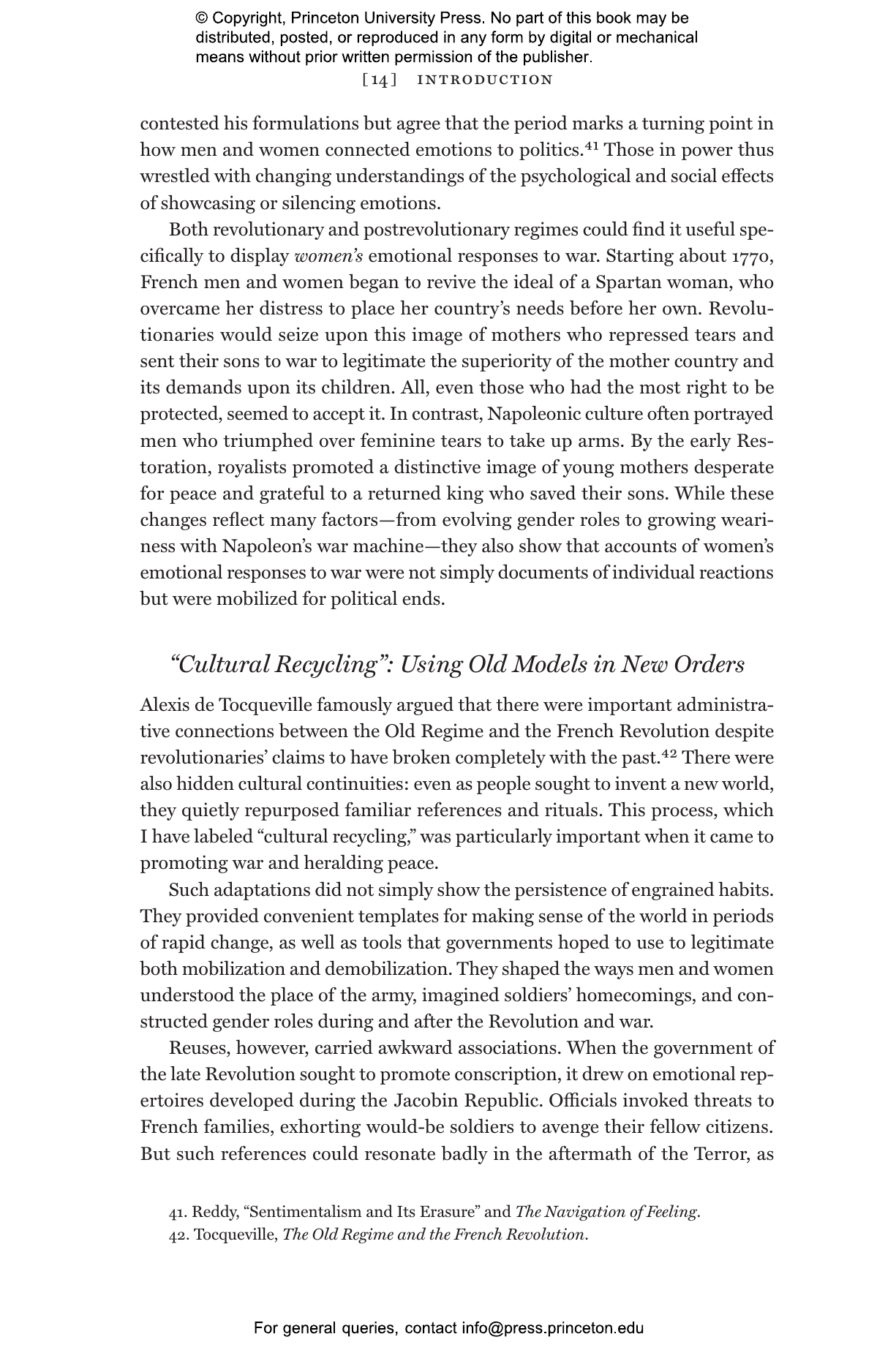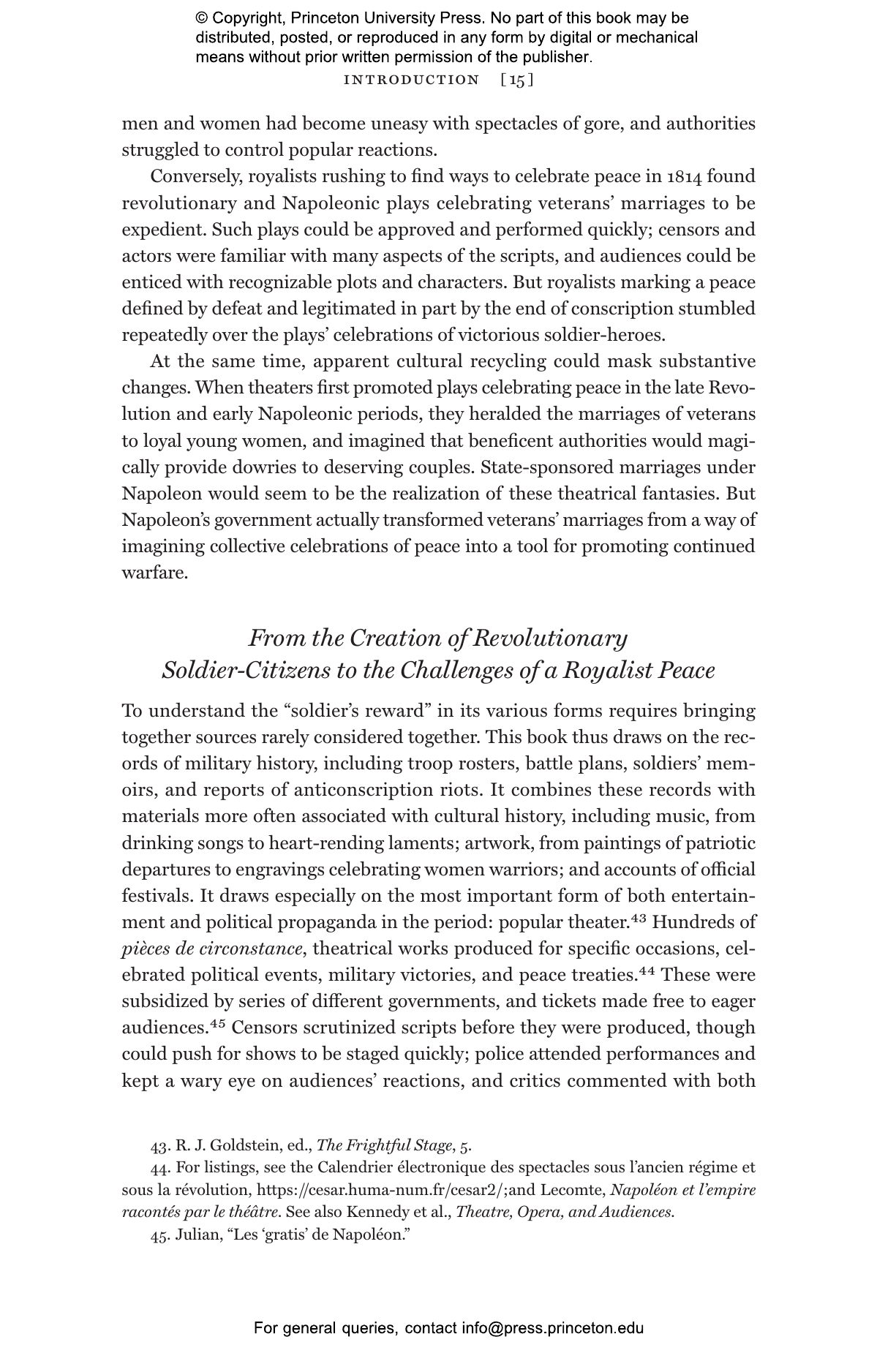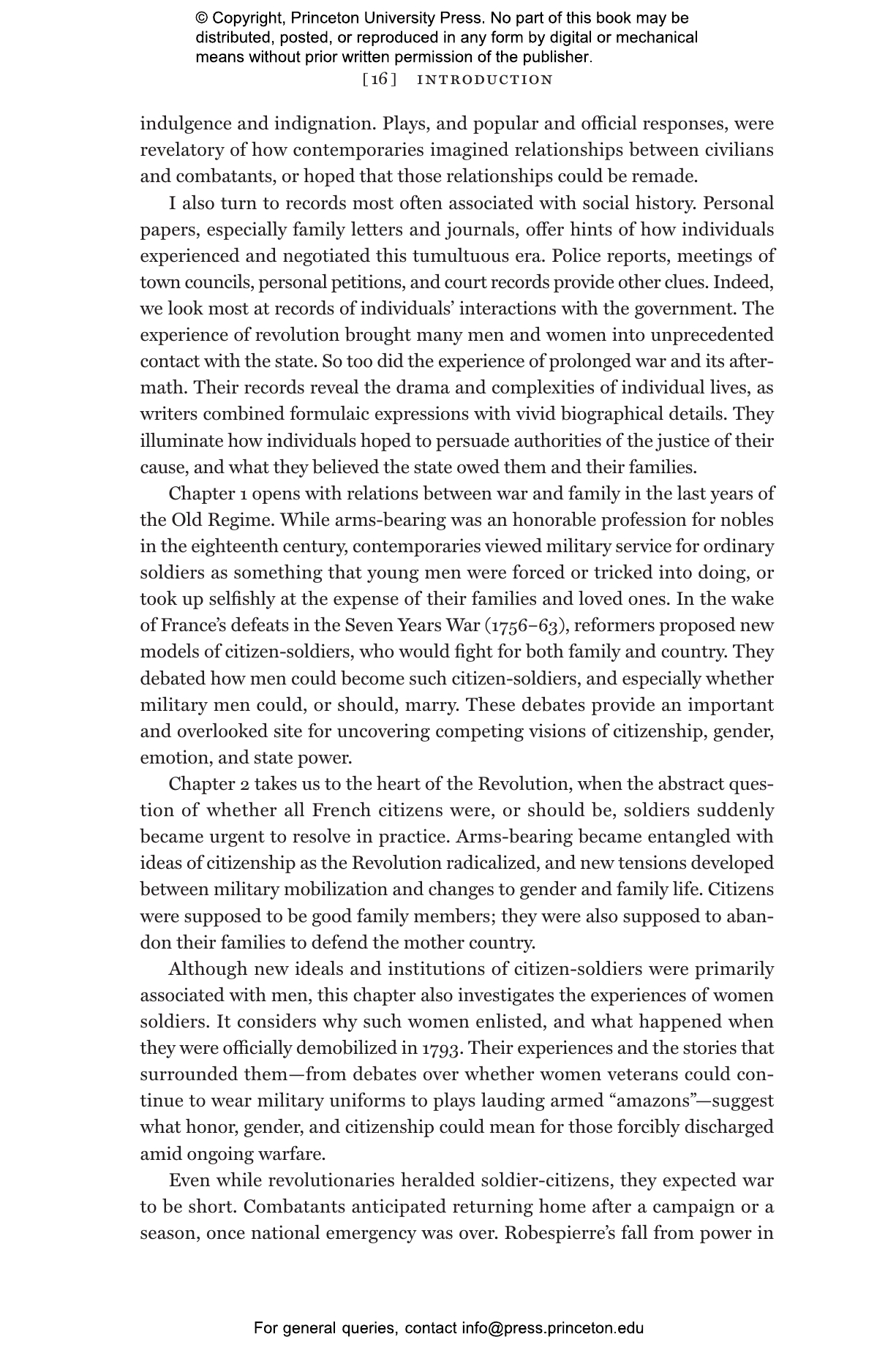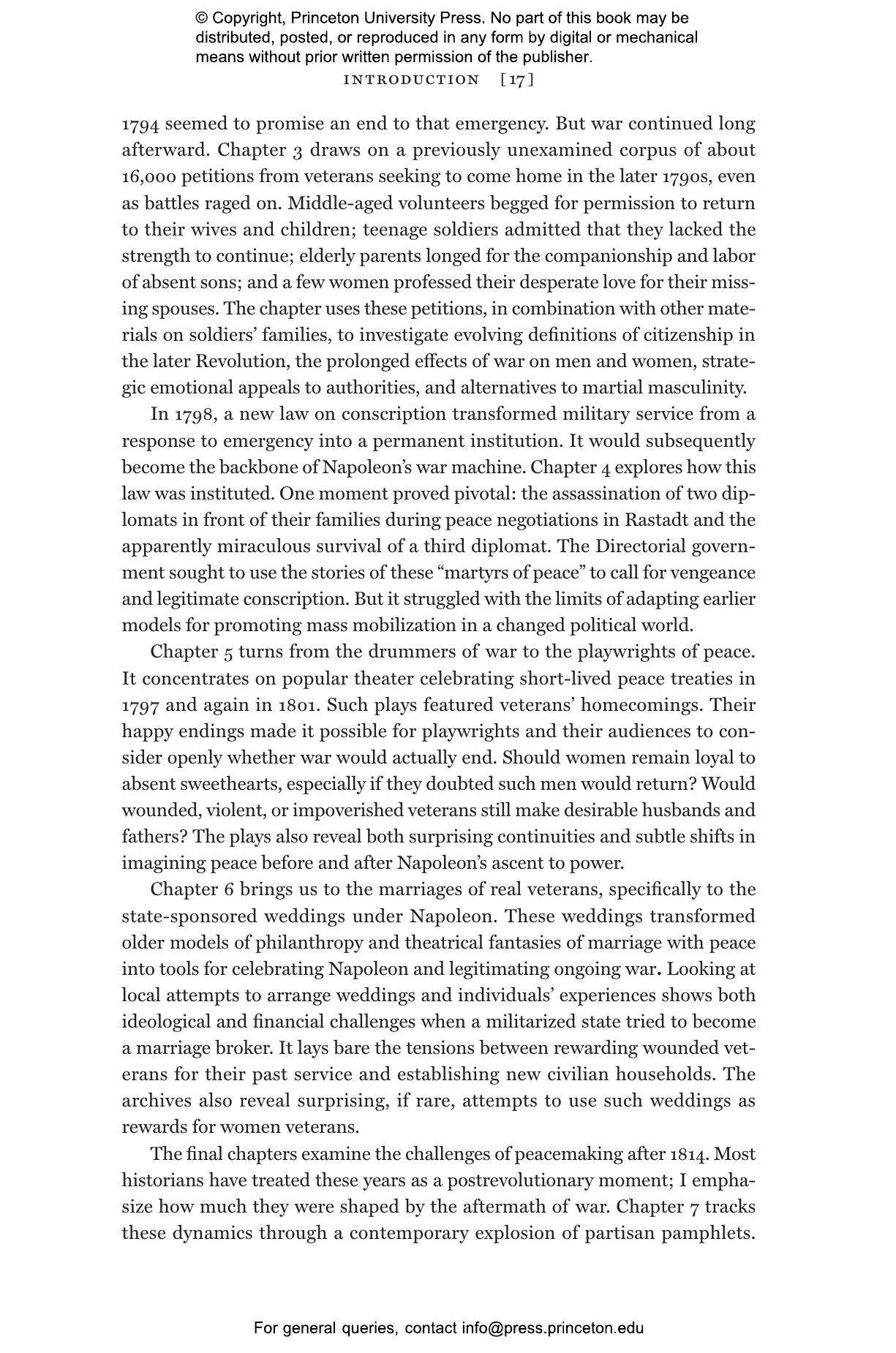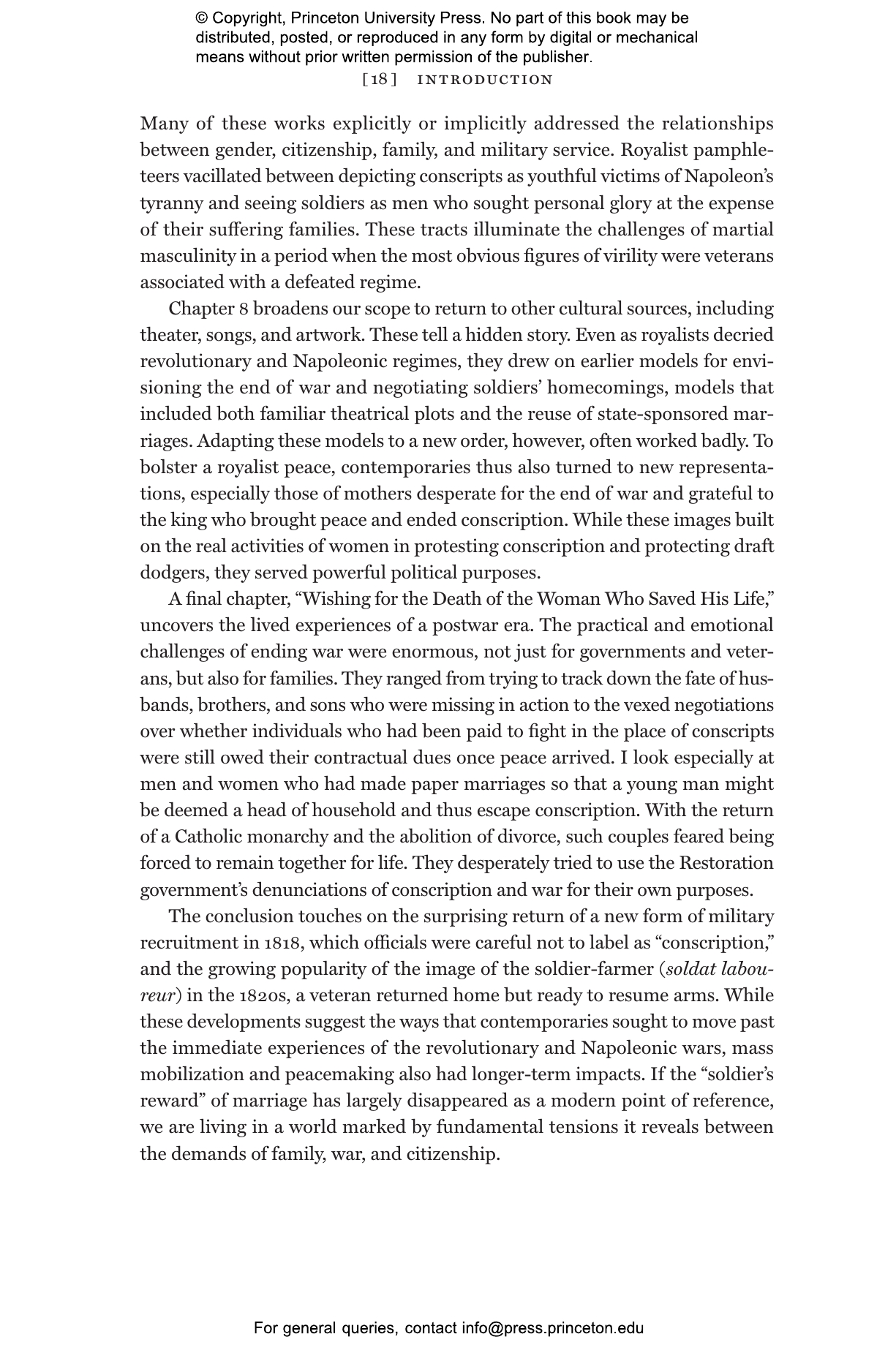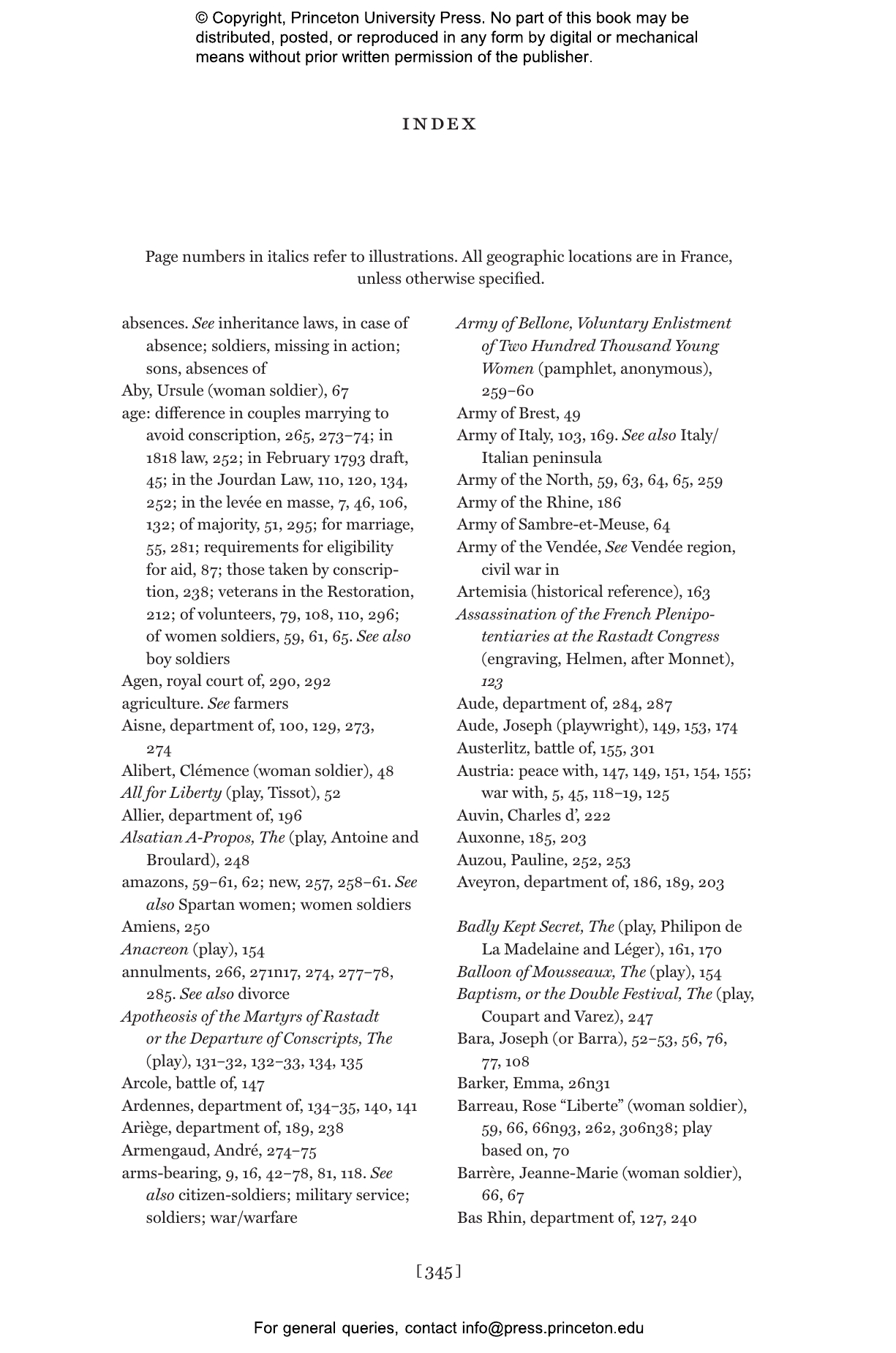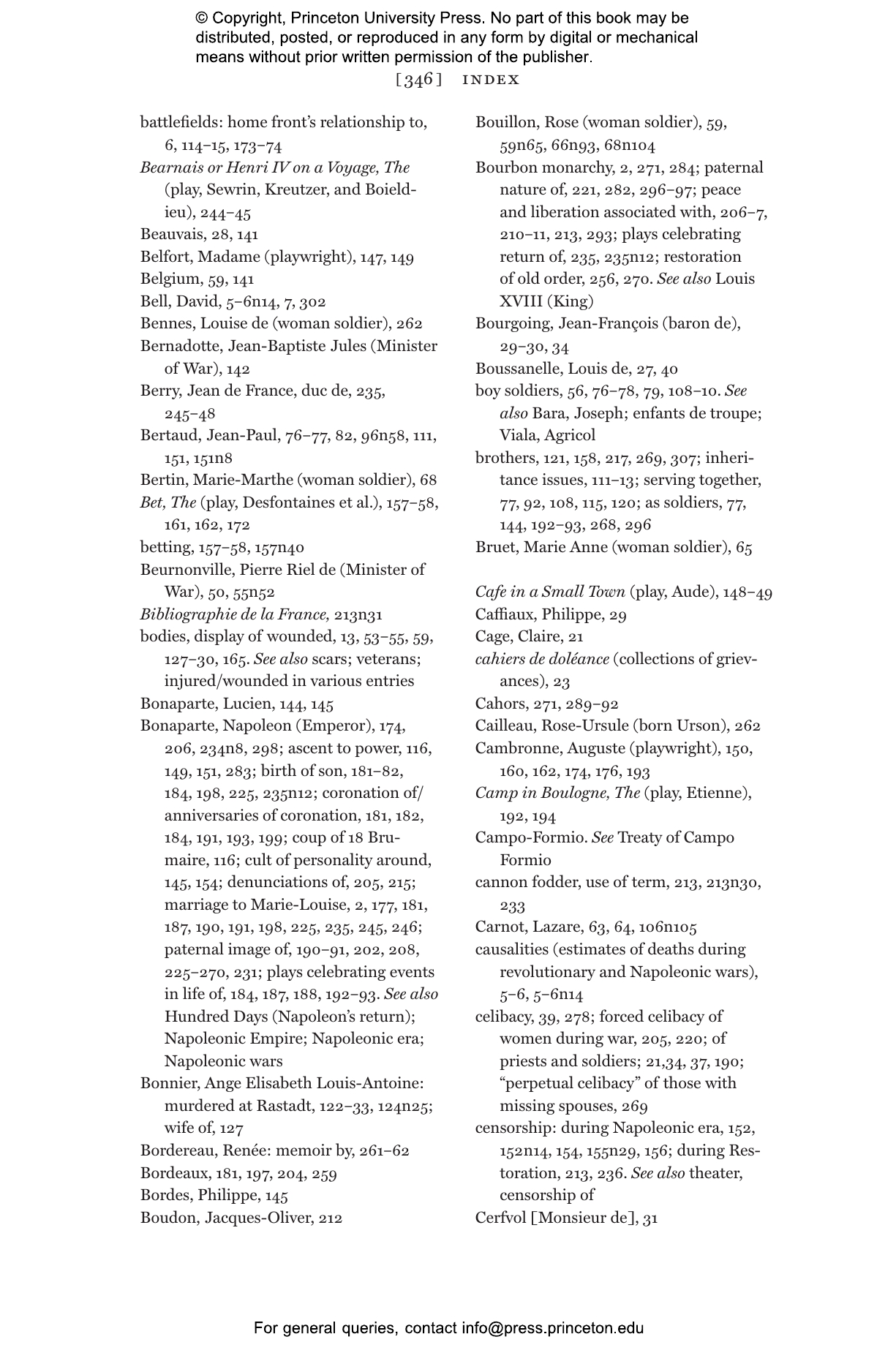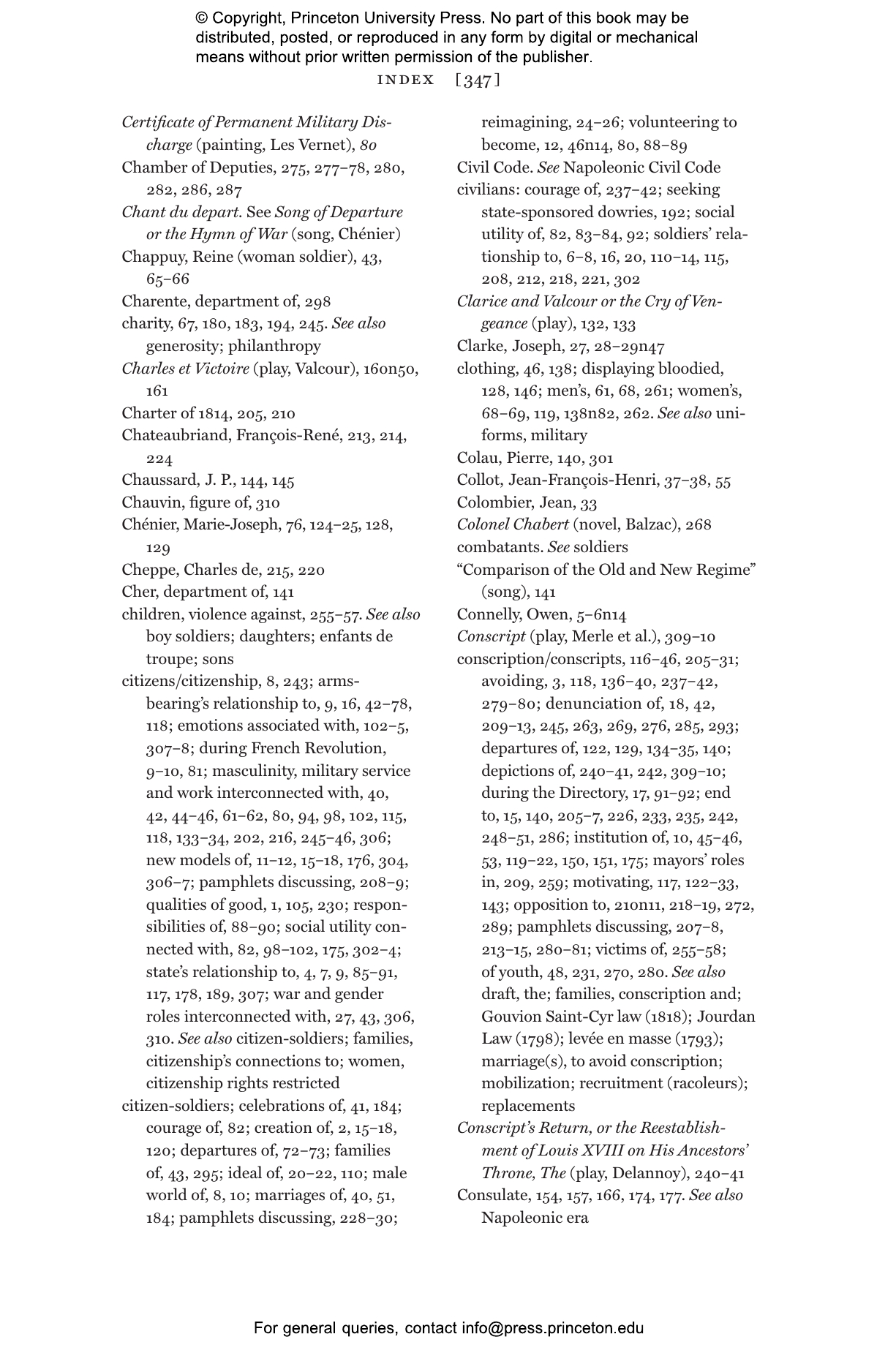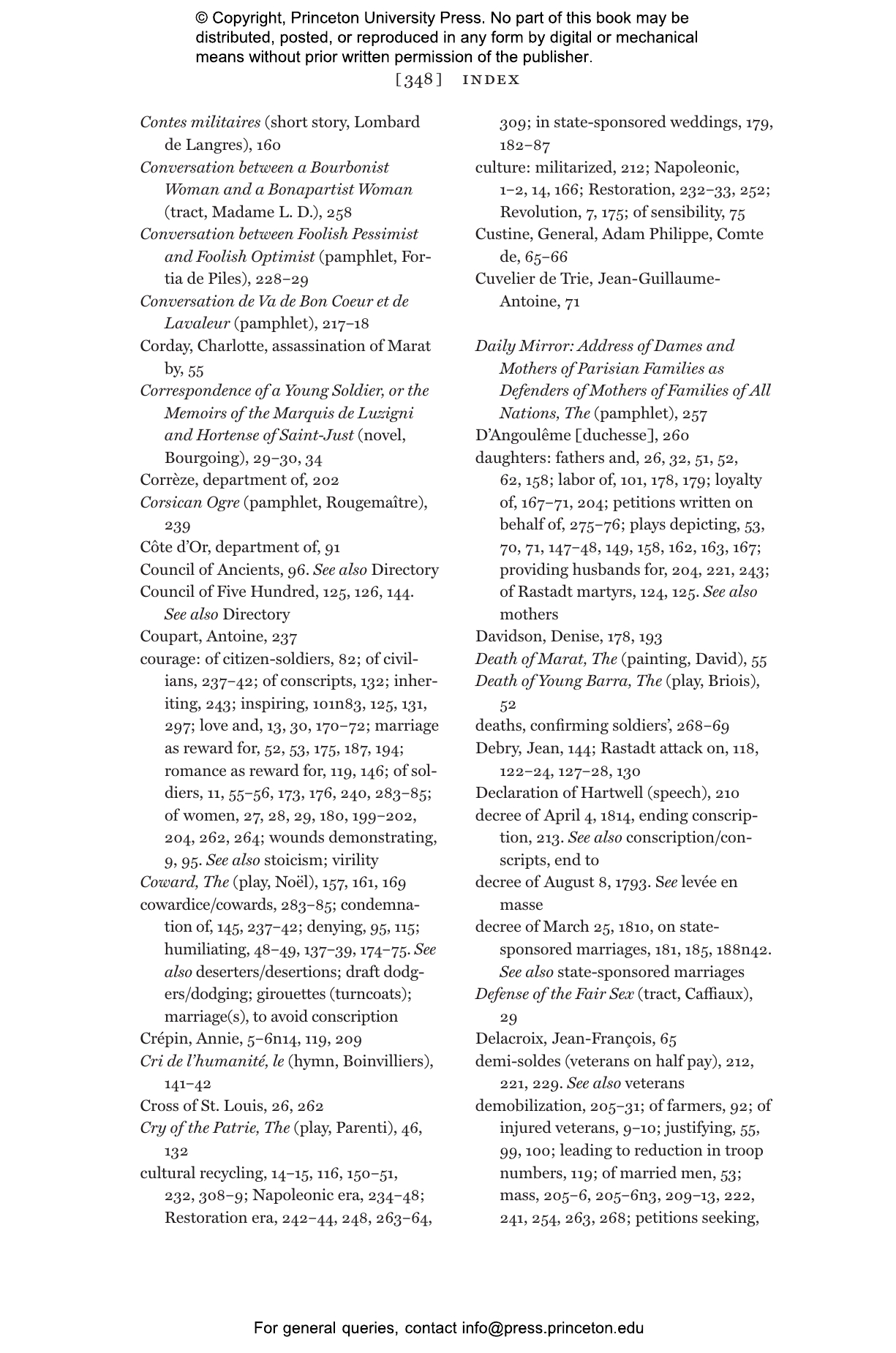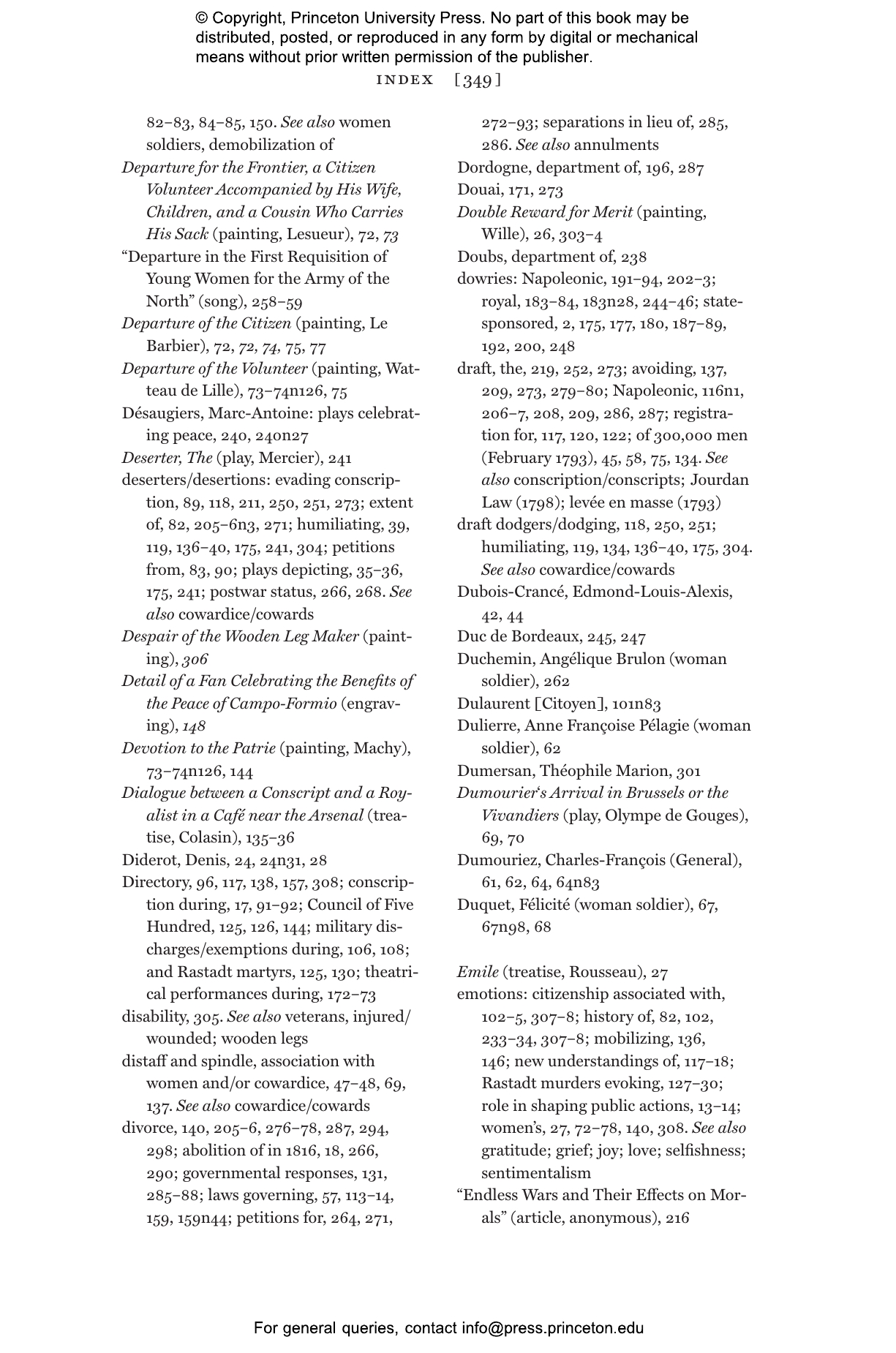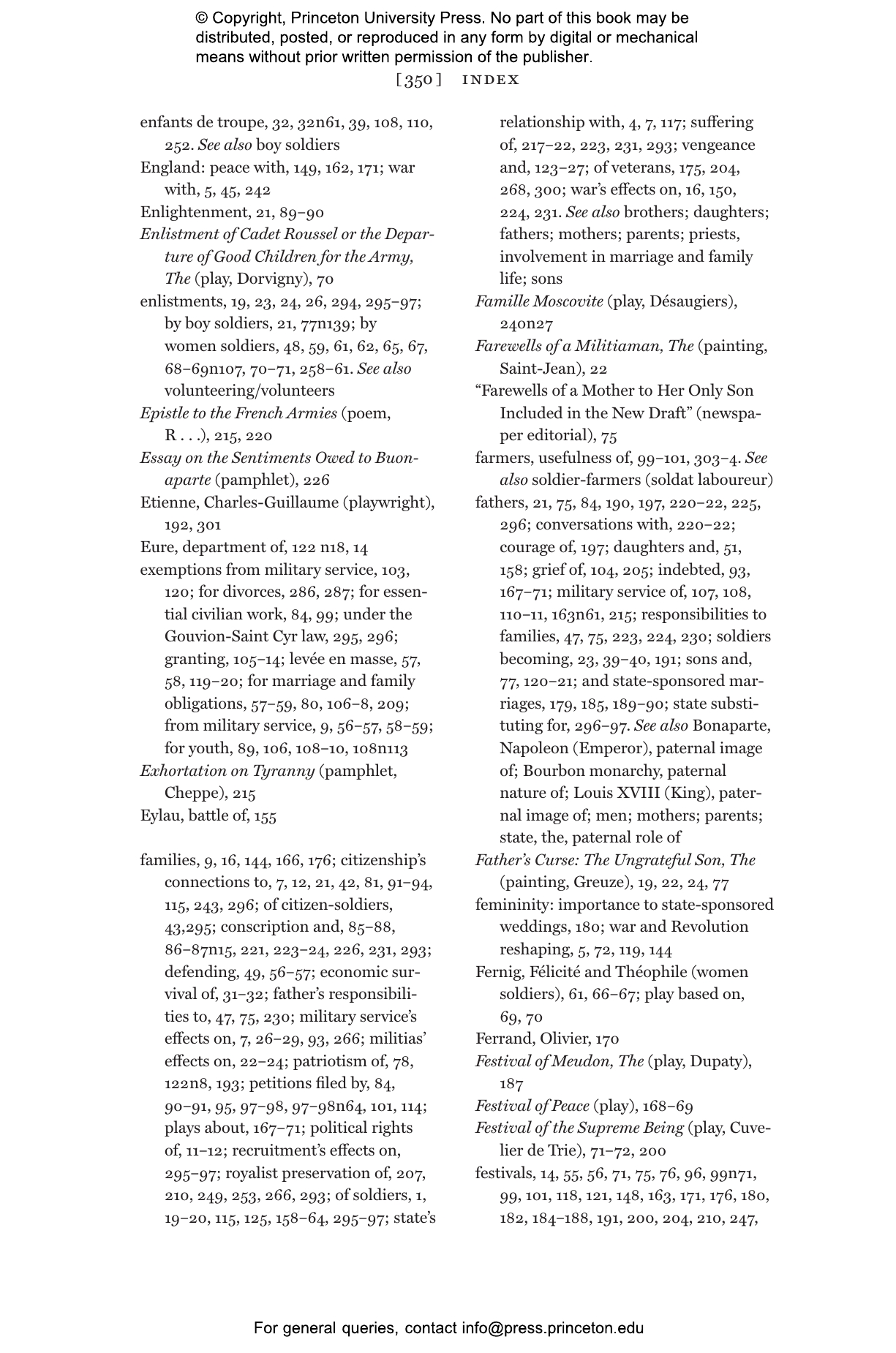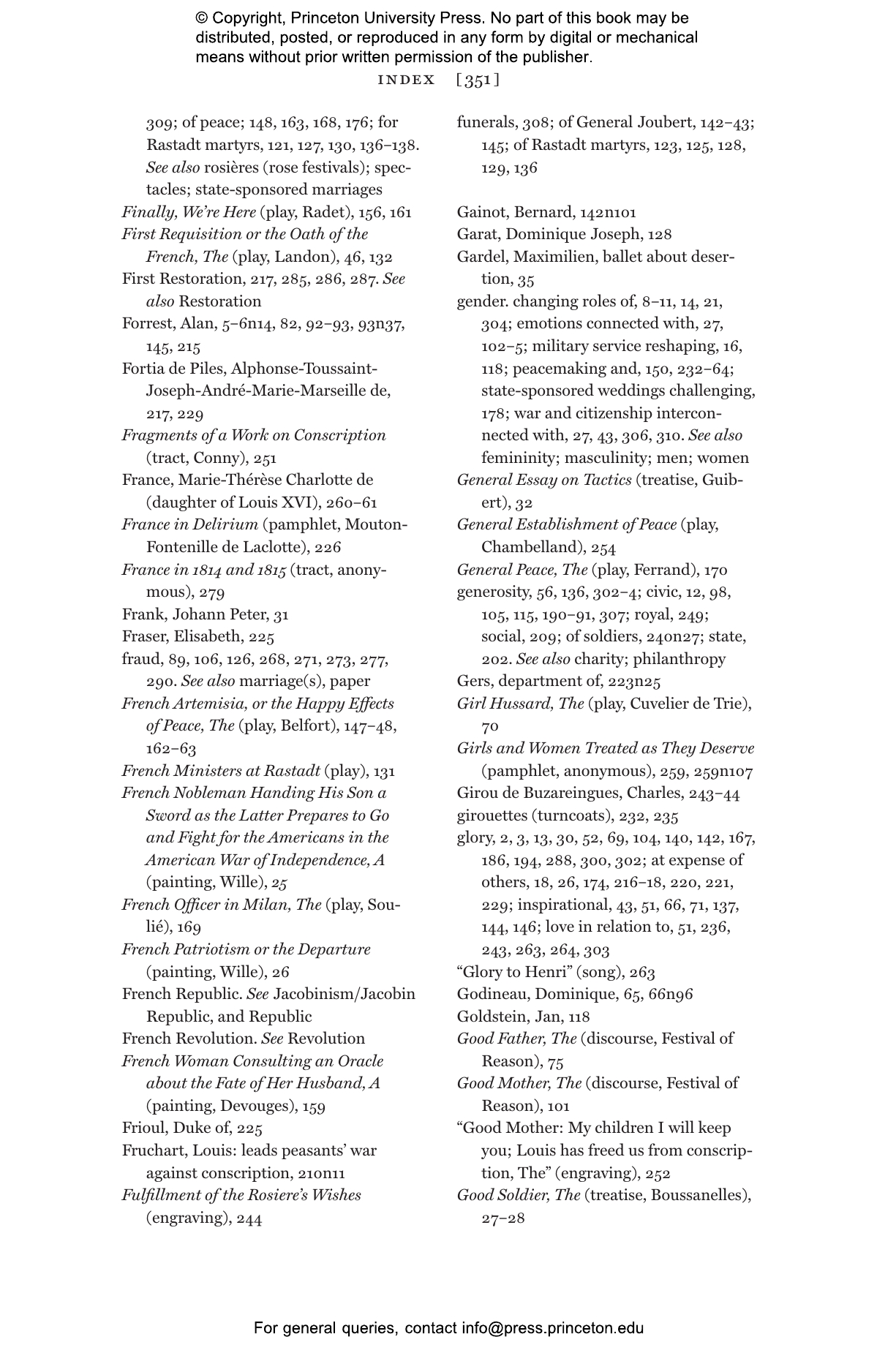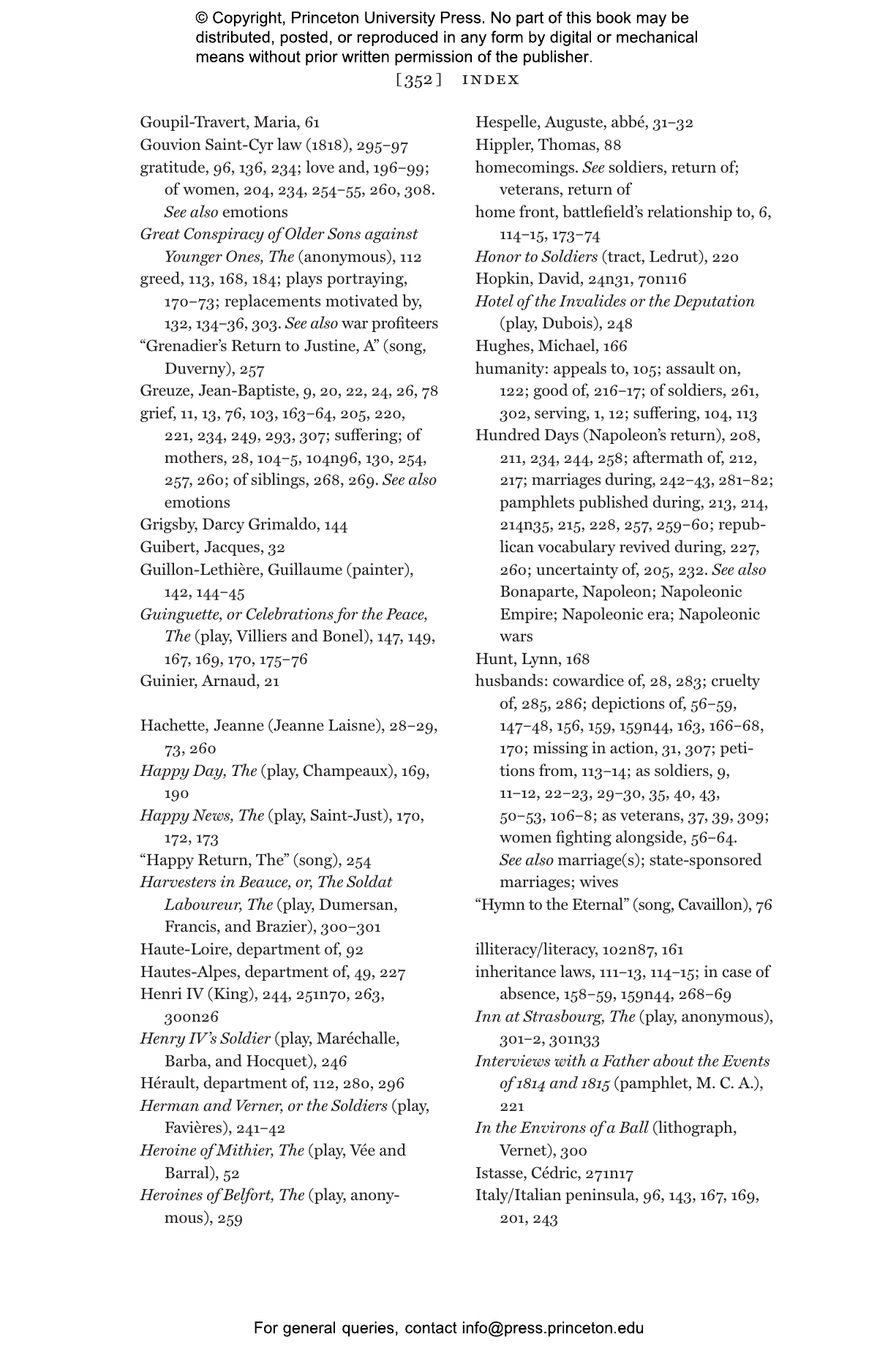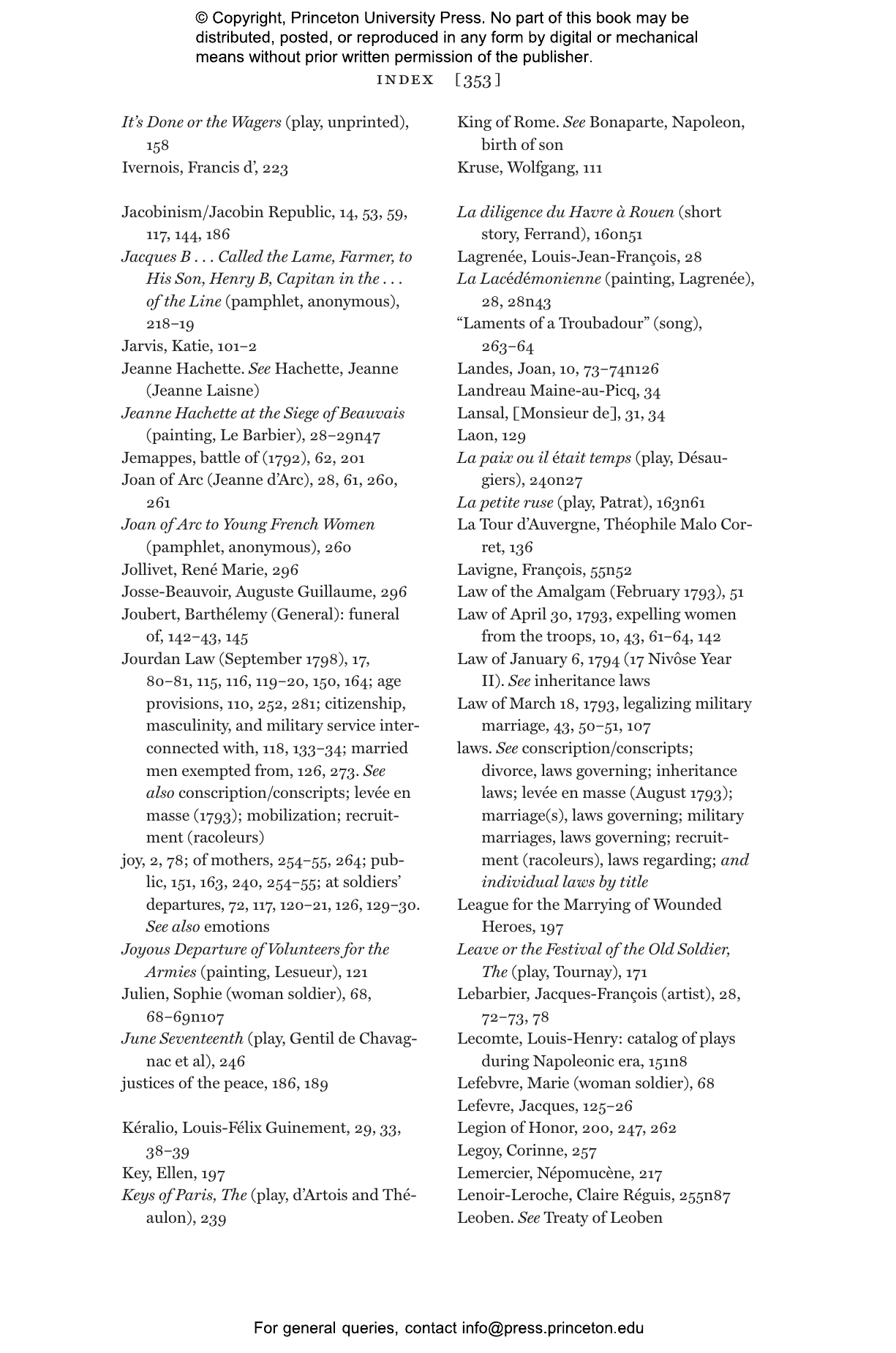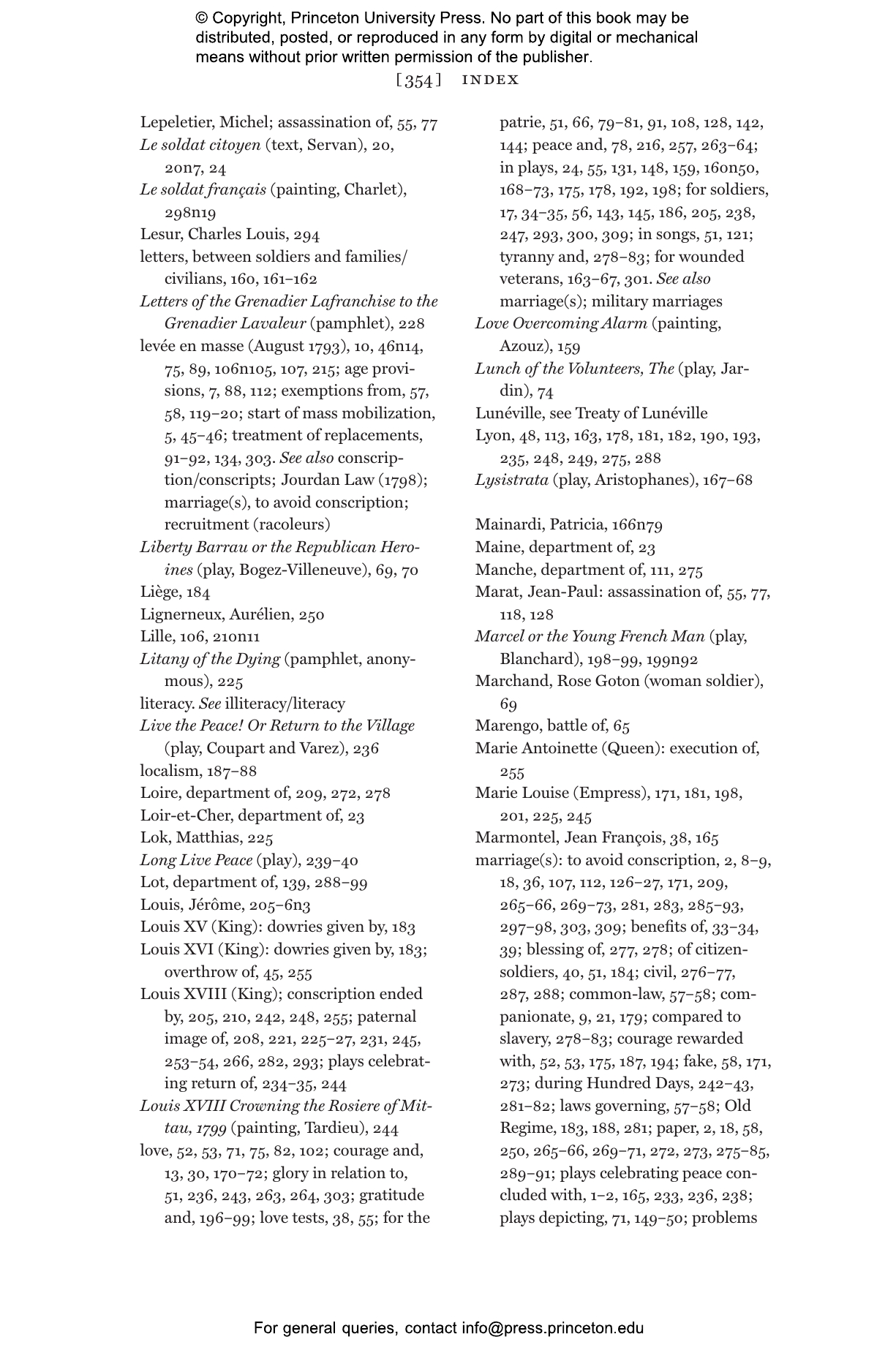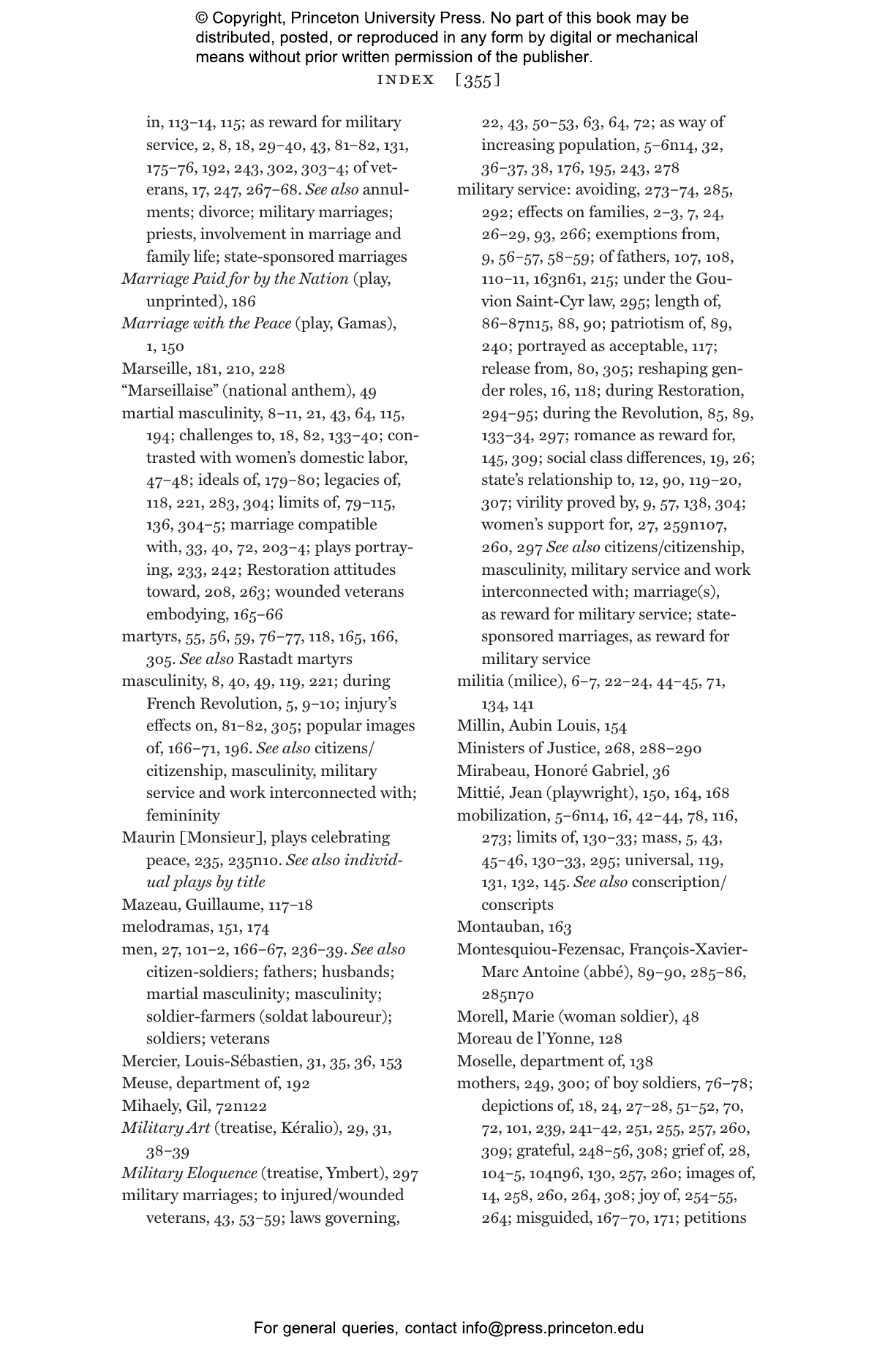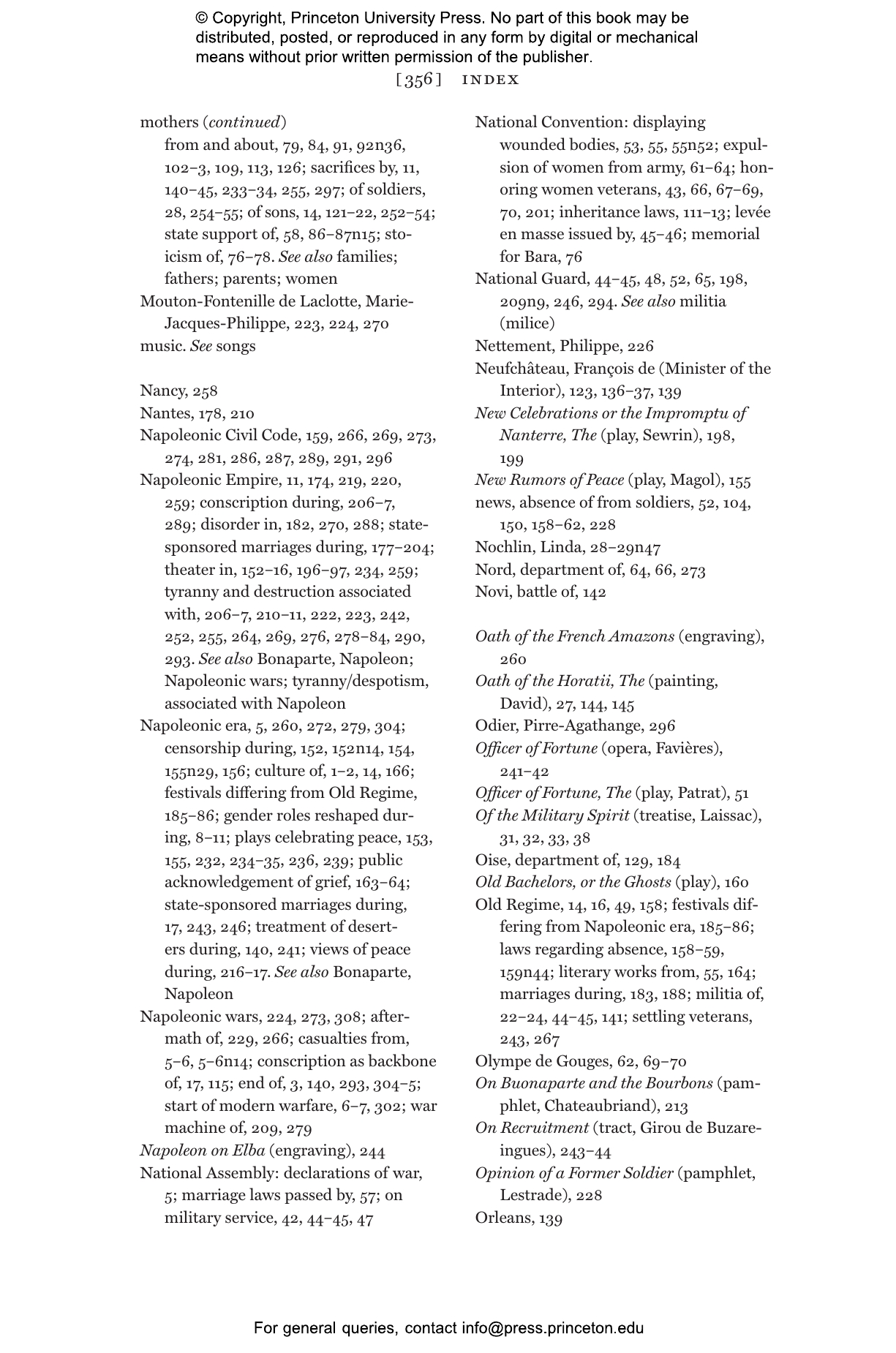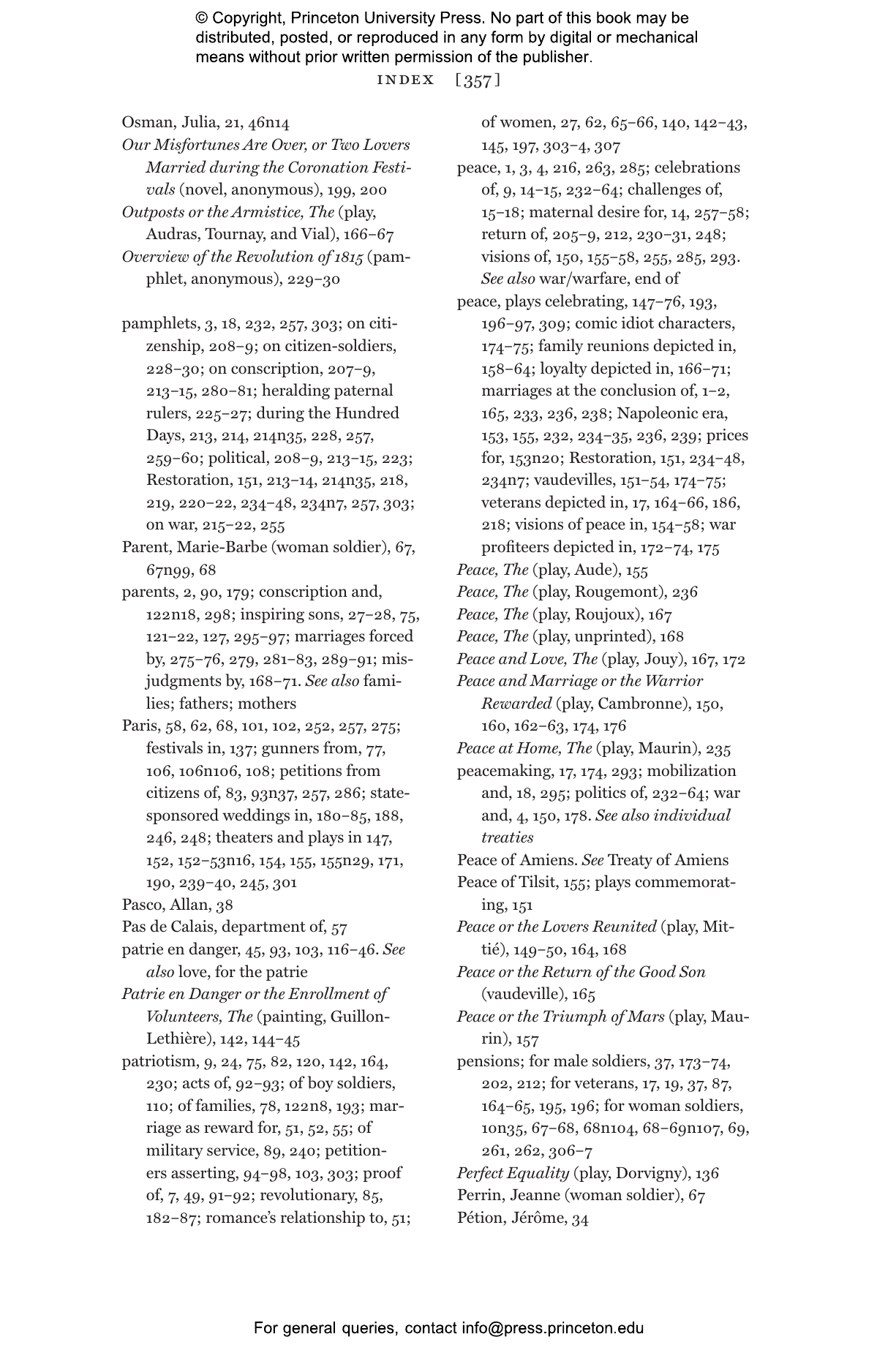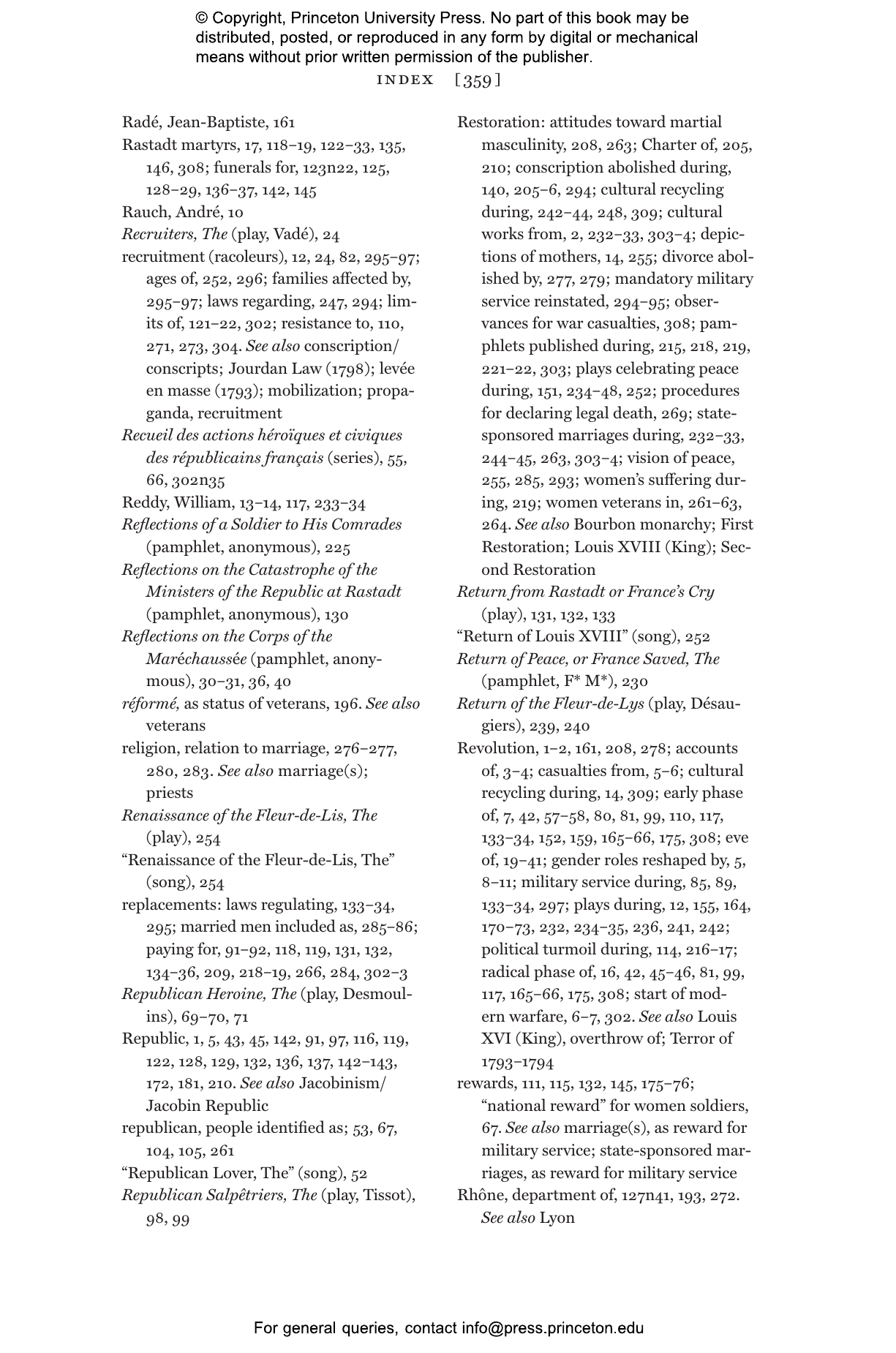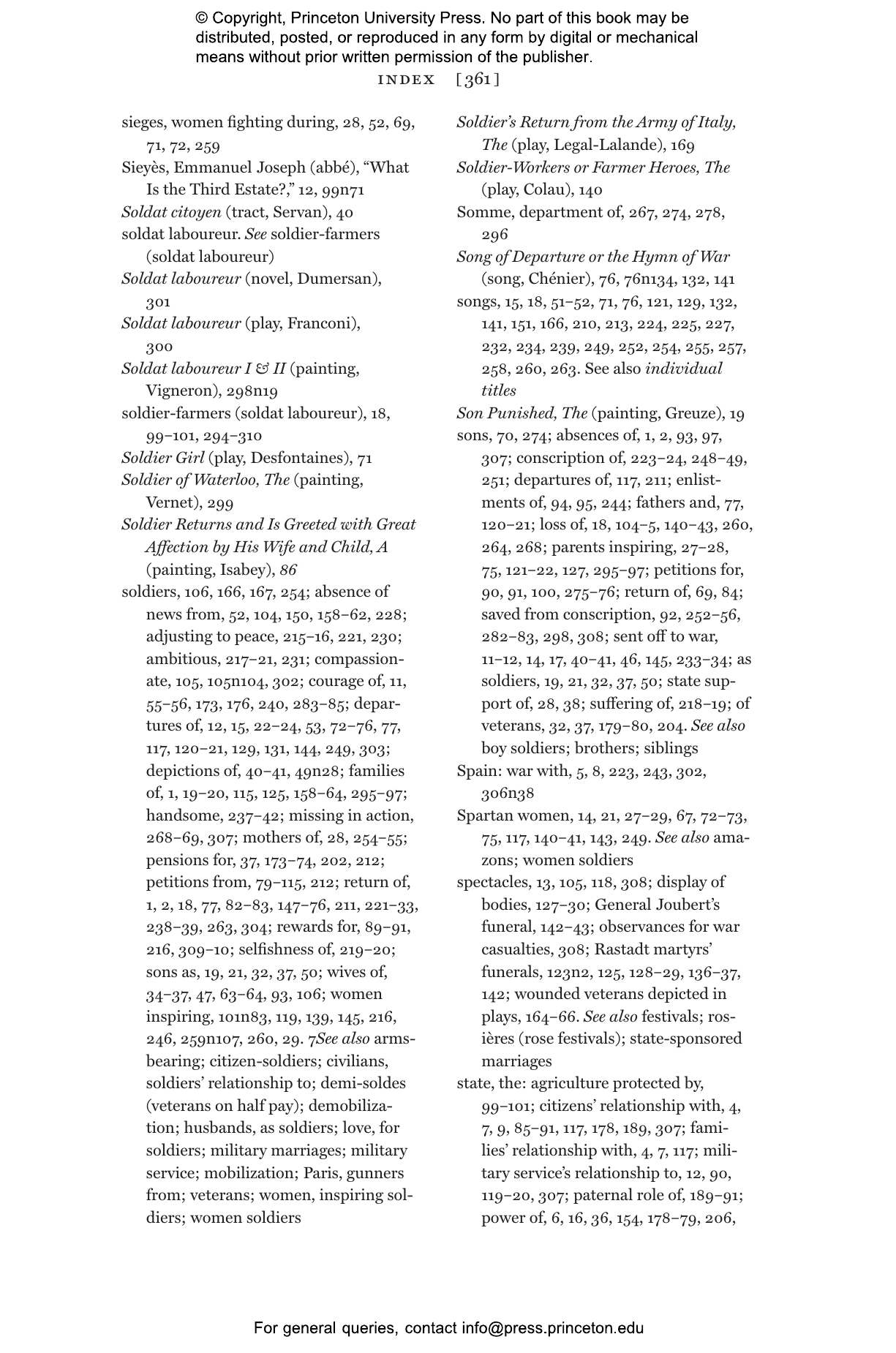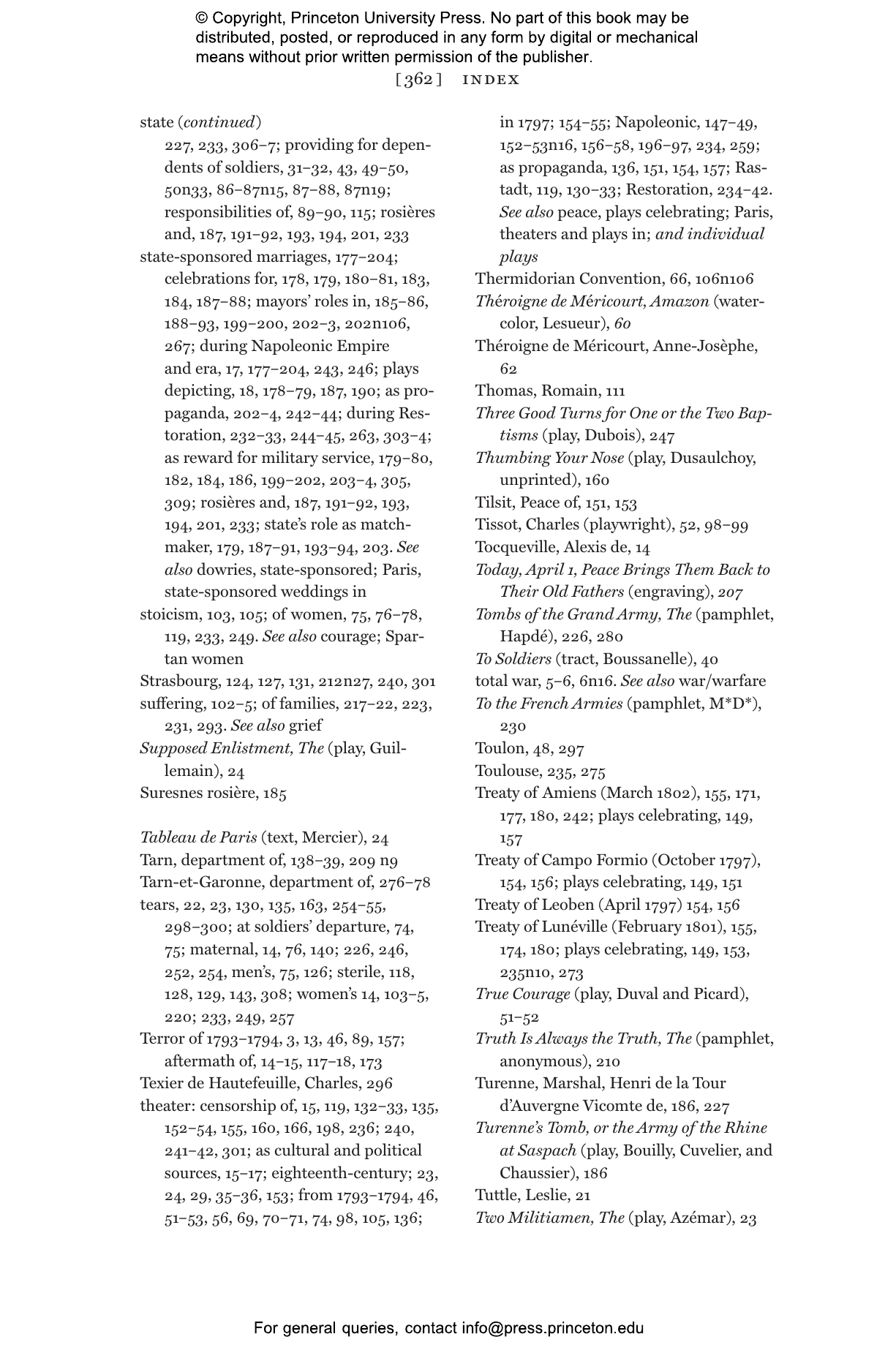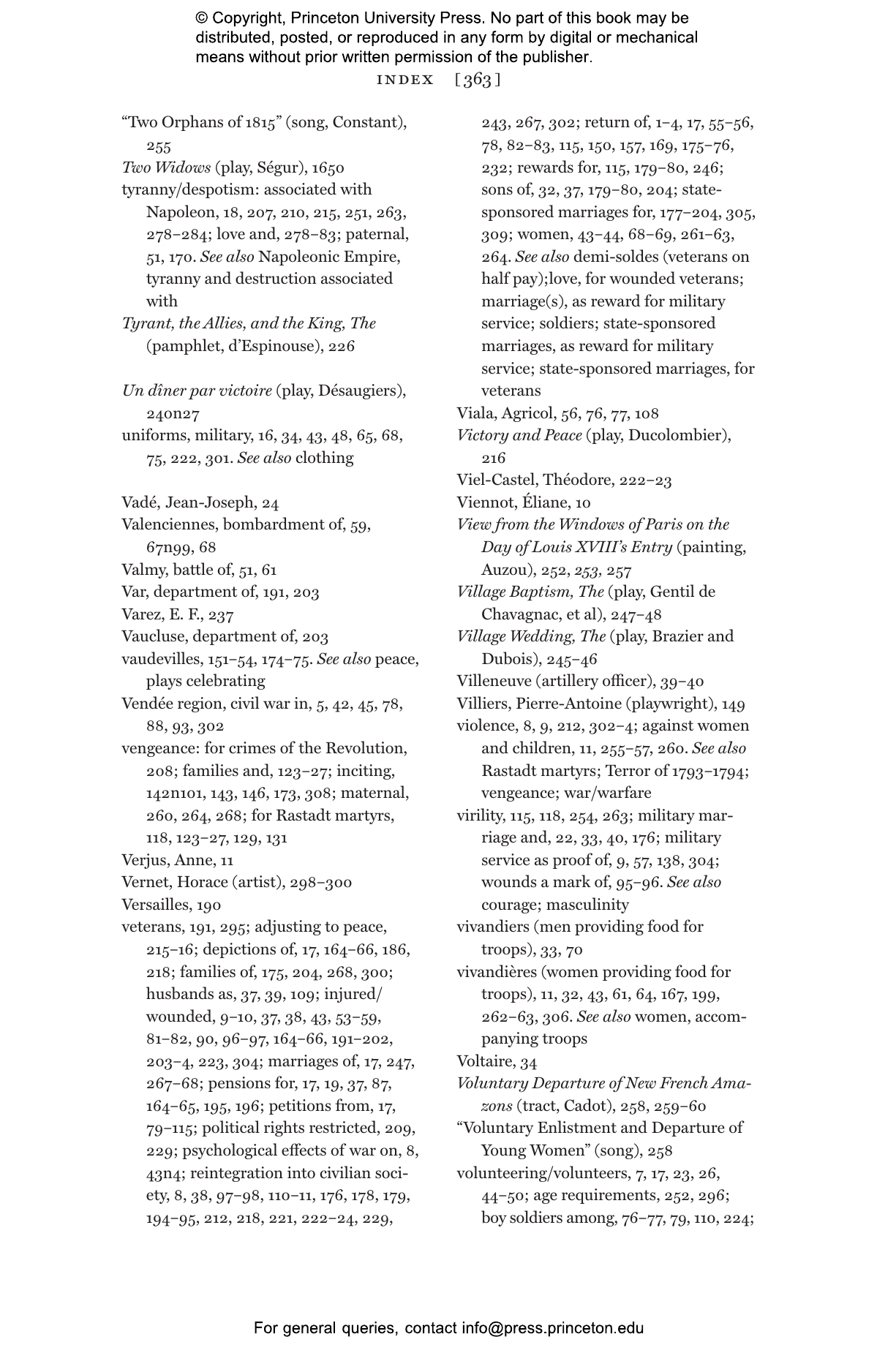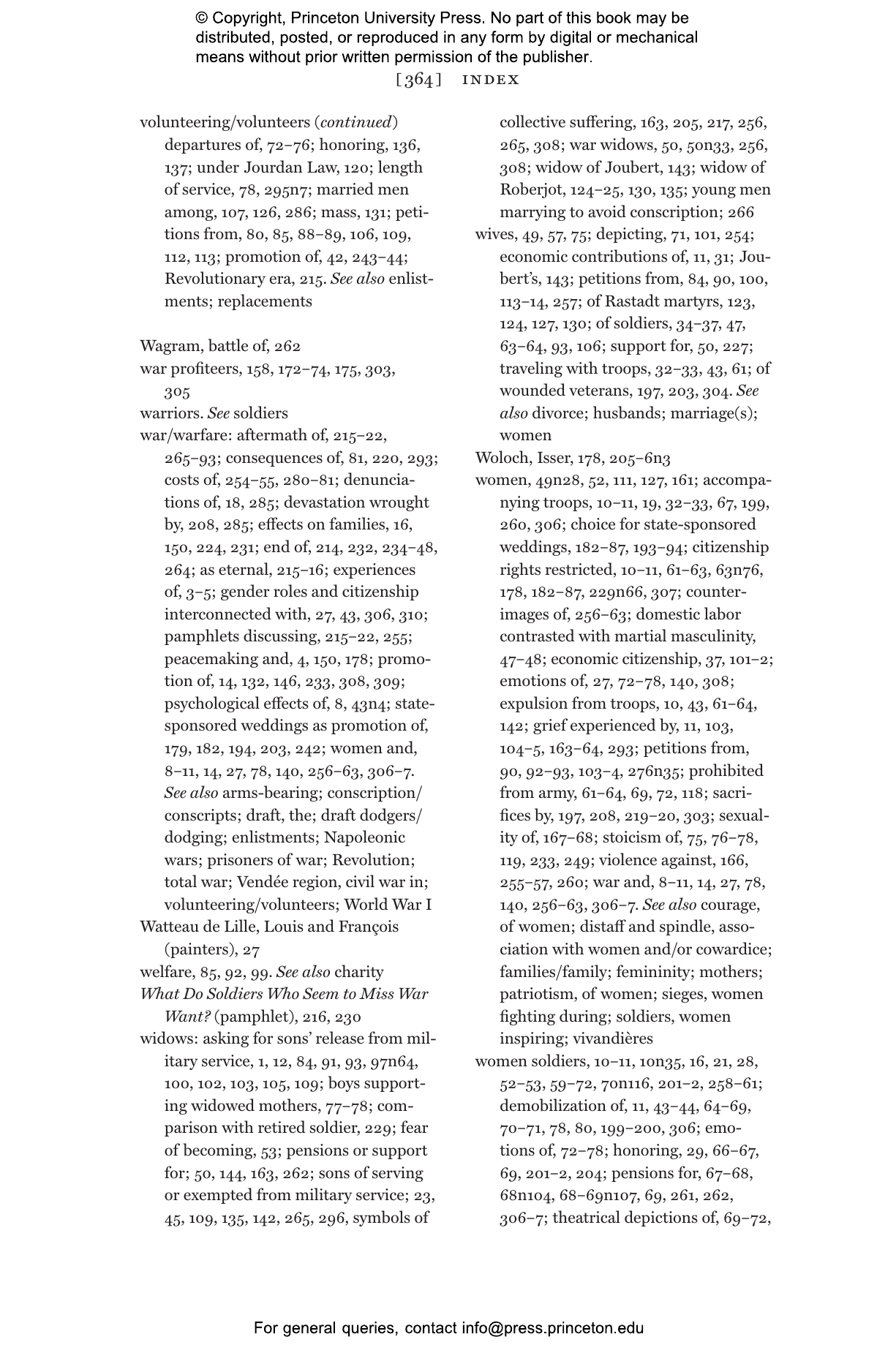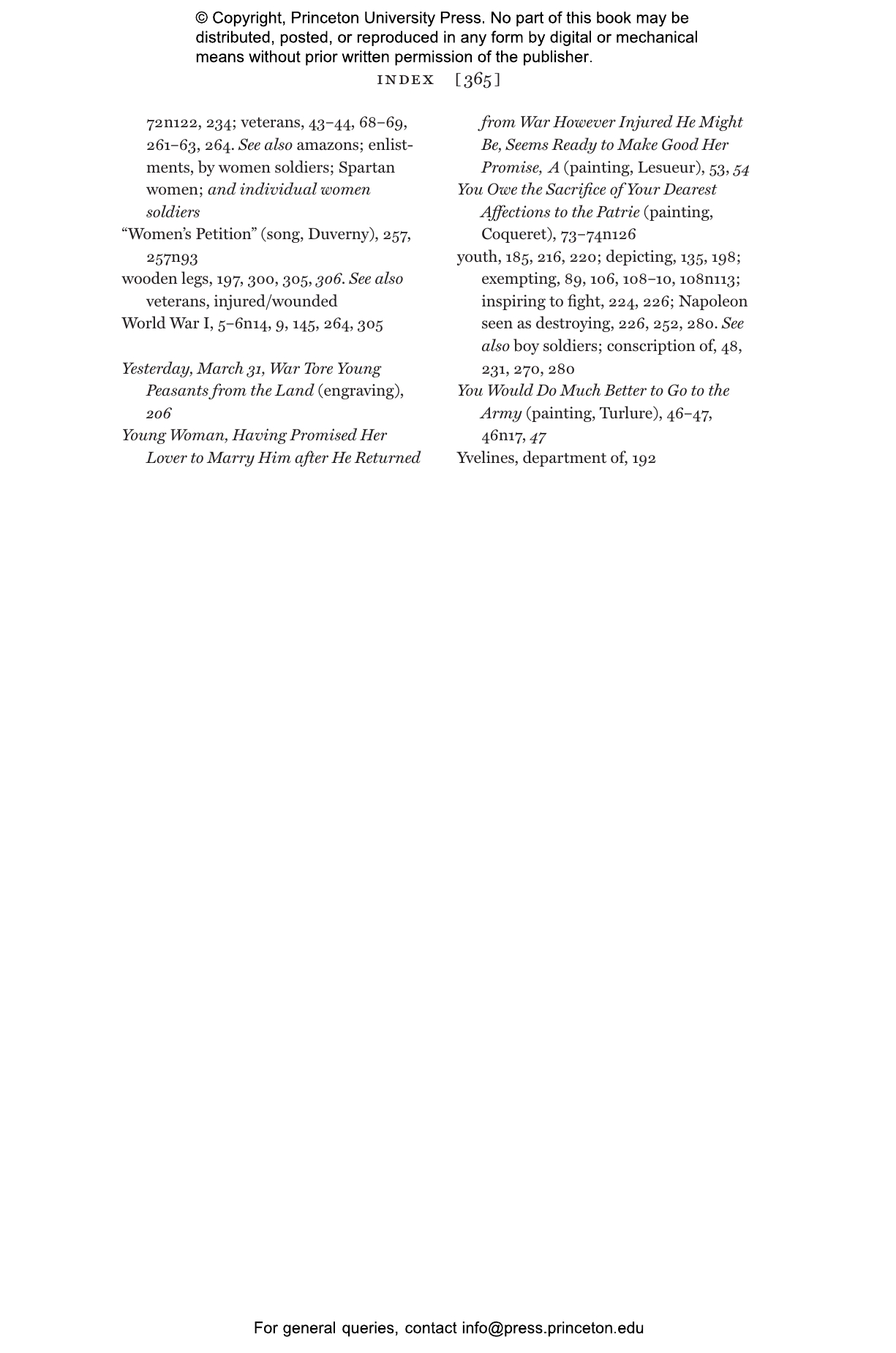The French Revolution and Napoleonic Wars devastated Europe for nearly a quarter of a century. The Soldier鈥檚 Reward recovers the stories of soldiers and their relationships to family and domestic life during this period, revealing how prolonged warfare transformed family and gender dynamics and gave rise to new kinds of citizenship.
In this groundbreaking work combining social, cultural, gender, and military history, Jennifer Ngaire Heuer vividly describes how men fought for years with only fleeting moments of peace. Combatants were promised promotion, financial gain, and patriotic glory. They were also rewarded for their service by being allowed to return home to waiting families and love interests, and with marriages that were arranged and financially supported by the state. Heuer explores competing ideas of masculinity in France, as well as the experiences of the men and women who participated in such marriages. She argues that we cannot fully understand the changing nature of war and peace in this period without considering the important roles played by family, gender, and romantic entanglements.
Casting new light on a turbulent era of mass mobilization and seemingly endless conflict, The Soldier鈥檚 Reward shows how, from the Revolution through the Restoration, war, intimacy, and citizenship intersected in France in new and unexpected ways.
Jennifer Ngaire Heuer is professor of history at the University of Massachusetts, Amherst. She is the author of The Family and the Nation: Gender and Citizenship in Revolutionary France, 1789–1830 and the editor (with Mette Harder) of Life in Revolutionary France.
“Demonstrating expansive scope, deep research, and an original framework, The Soldier’s Reward insightfully explores how relentless warfare had an impact on family dynamics, models of citizenship, and gender ideology. With a particular focus on martial masculinity, Heuer does a superb job of investigating its contours and power, but also its limits and inherent tensions.”—Suzanne Desan, author of The Family on Trial in Revolutionary France
“In this groundbreaking study, Jennifer Ngaire Heuer reassesses the importance of war, gender, and citizenship in the portrayal of soldiering during the French Revolutionary and Napoleonic Wars. Drawing on an impressive range of pamphlets, plays, and prints, she shows how the images of military masculinity and civic virtue so prevalent in the 1790s were gradually replaced by portrayals of a world without war, playing to the soldiers’ hopes for the future, their dreams of female company, marriage, and family life.”—Alan Forrest, University of York
“Heuer offers new directions for research on gender and the revolutionary moment. The Soldier’s Reward is important, innovative, and a pleasure to read.”—Carol E. Harrison, author of Romantic Catholics: France’s Postrevolutionary Generation in Search of a Modern Faith
“The Soldier’s Reward compellingly elucidates how citizenship, gender, marriage, and family became vital flash points as the French Revolutionary, Napoleonic, and Restoration regimes sought to recruit, retain, and care for millions of soldiers and veterans during two decades of war on an unprecedented scale. Heuer’s pioneering analyses bring to bear an extraordinary breadth of source materials to show how warfare drove long-lasting social, economic, and cultural transformations. A major contribution.”—Christy L. Pichichero, author of The Military Enlightenment
“Heuer explores the paradoxes of martial masculinity by setting the soldier alongside women, politicians, playwrights, families and their interests, and cultural personages such as priests and notables. The Soldier’s Reward deepens our understanding of soldiering in Revolutionary, Napoleonic, and Restoration France while providing a unique look at women in wartime.”—Bonnie G. Smith, author of Women in World History: 1450 to the Present


